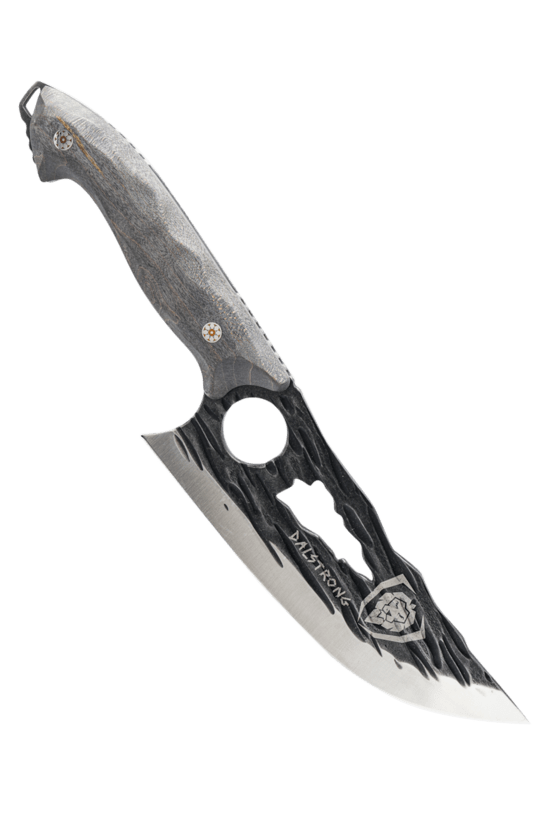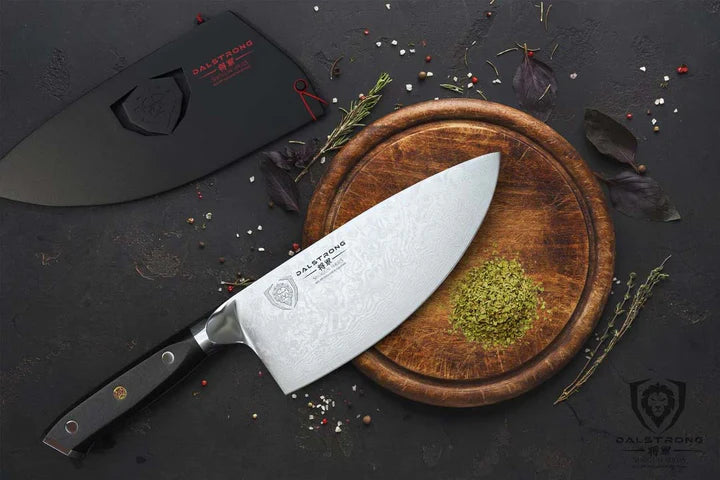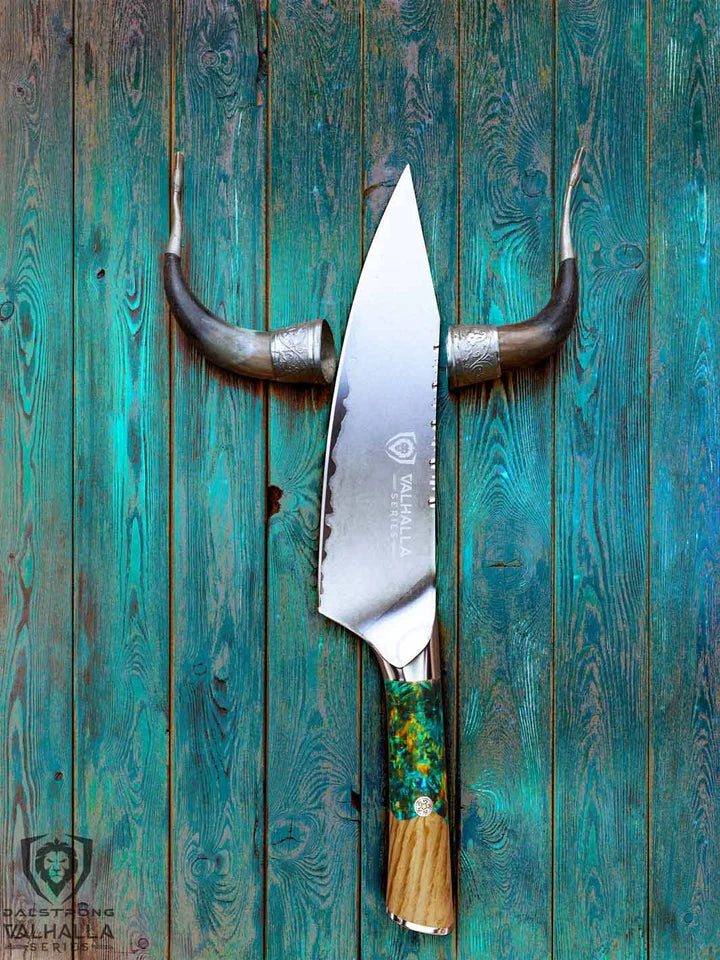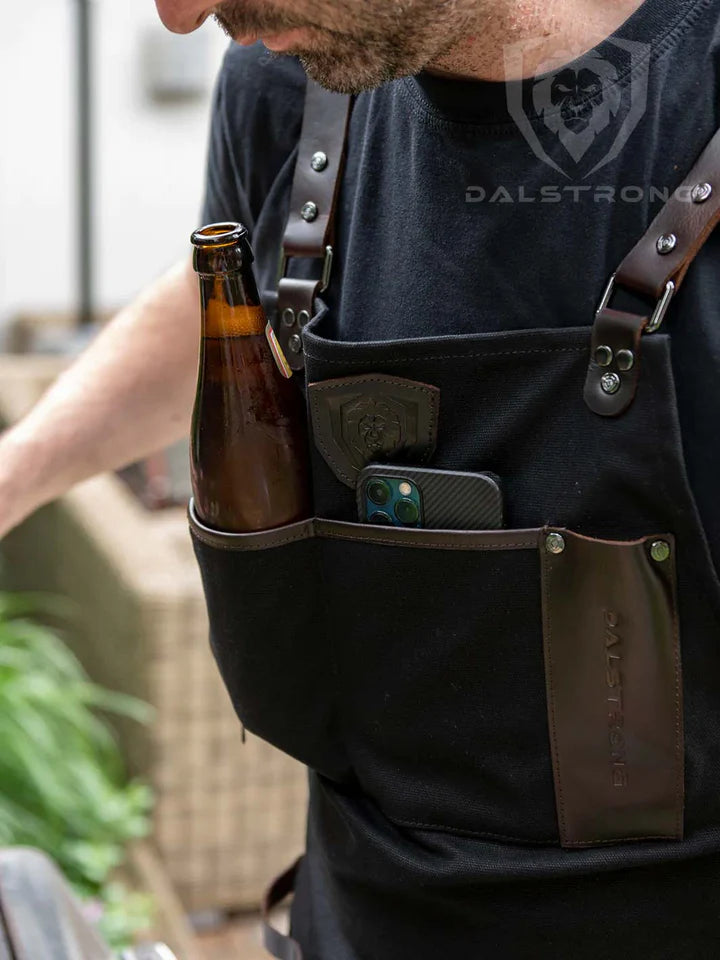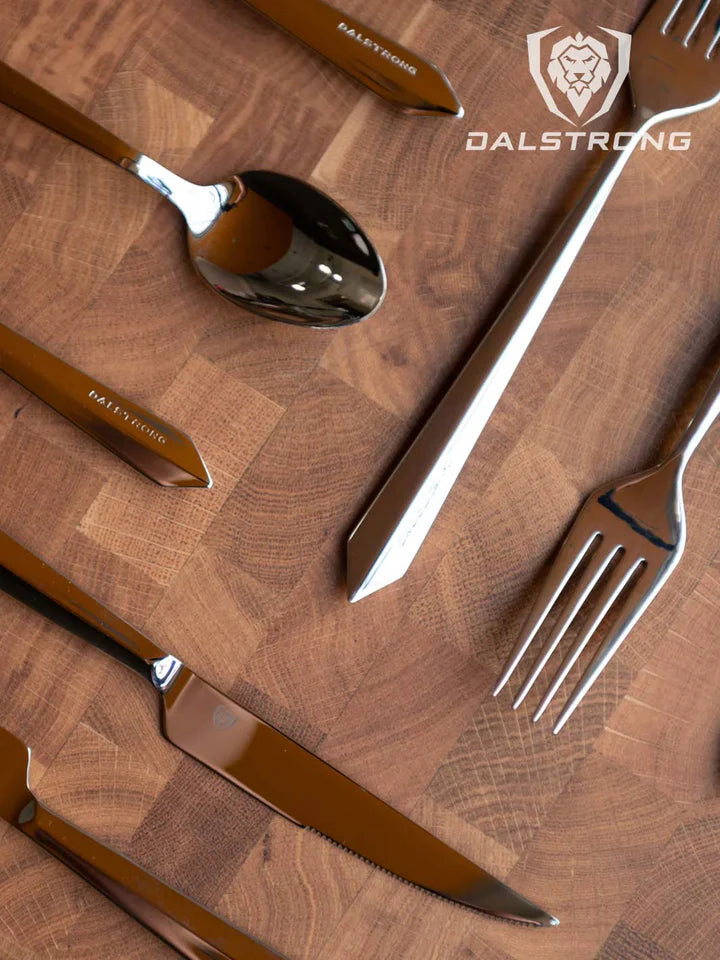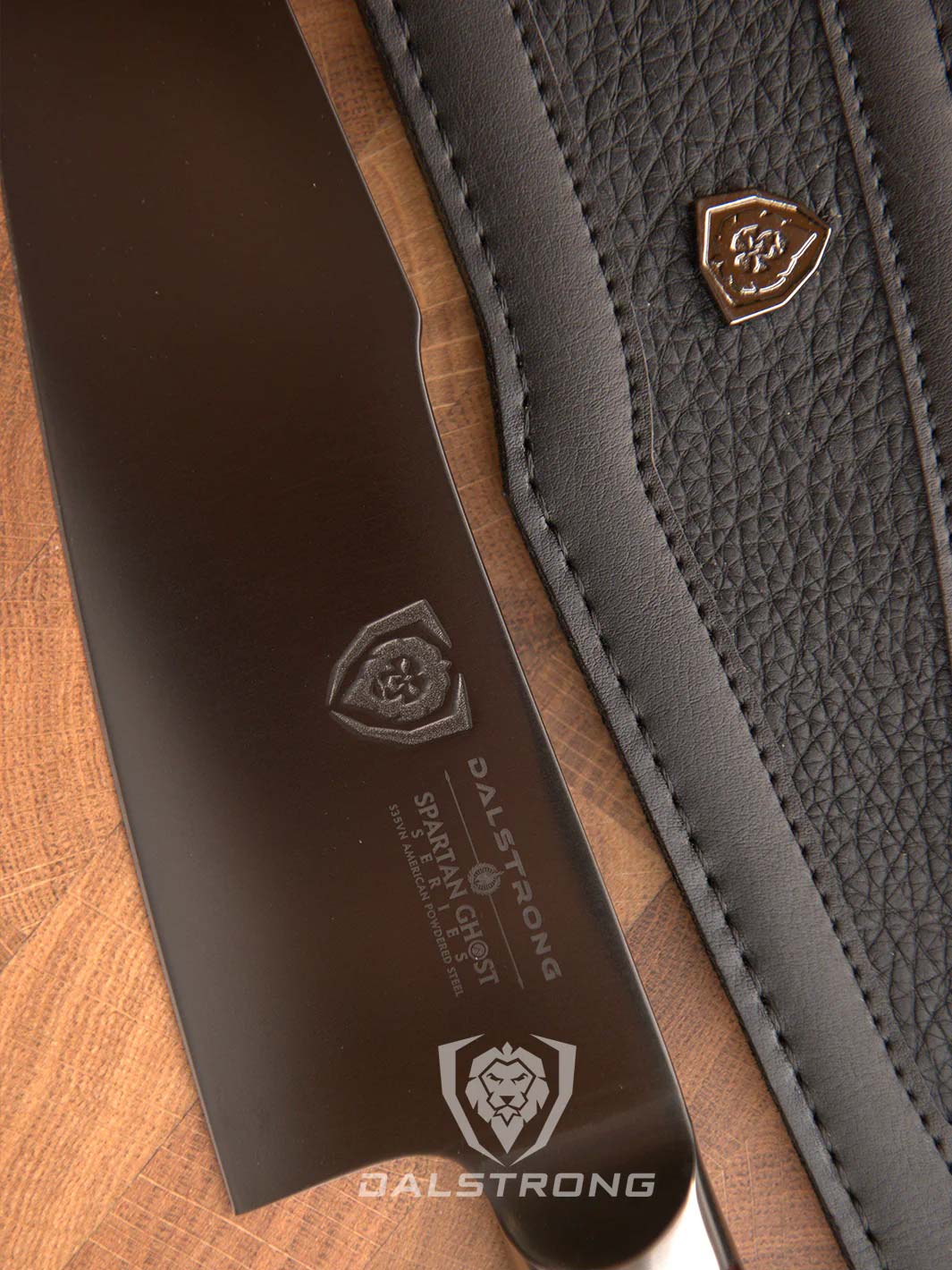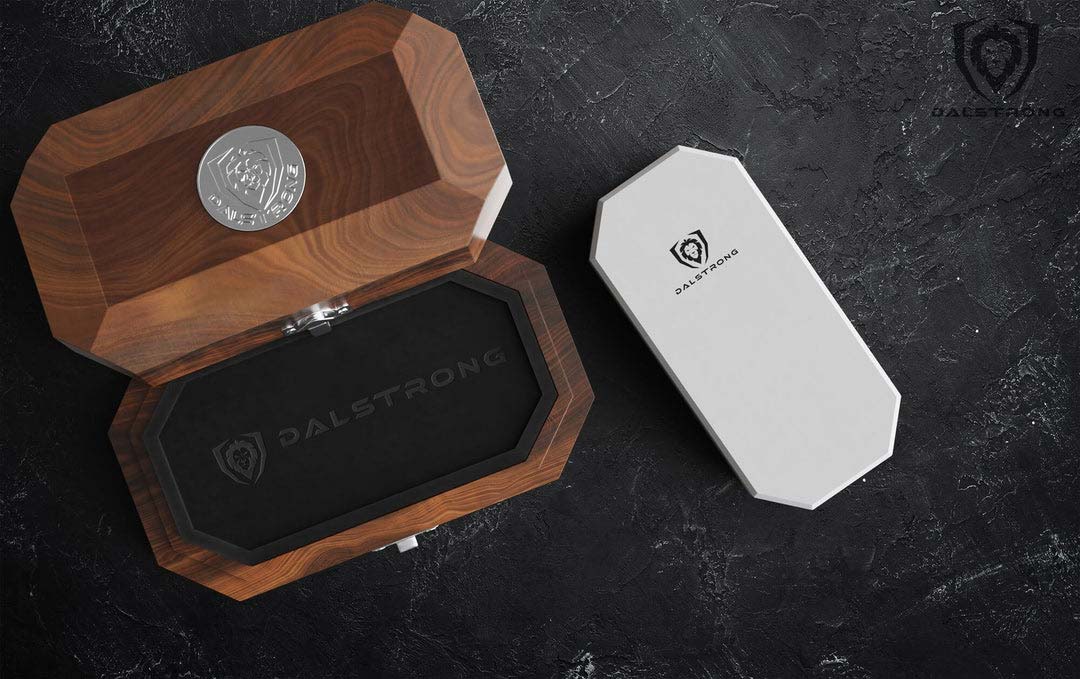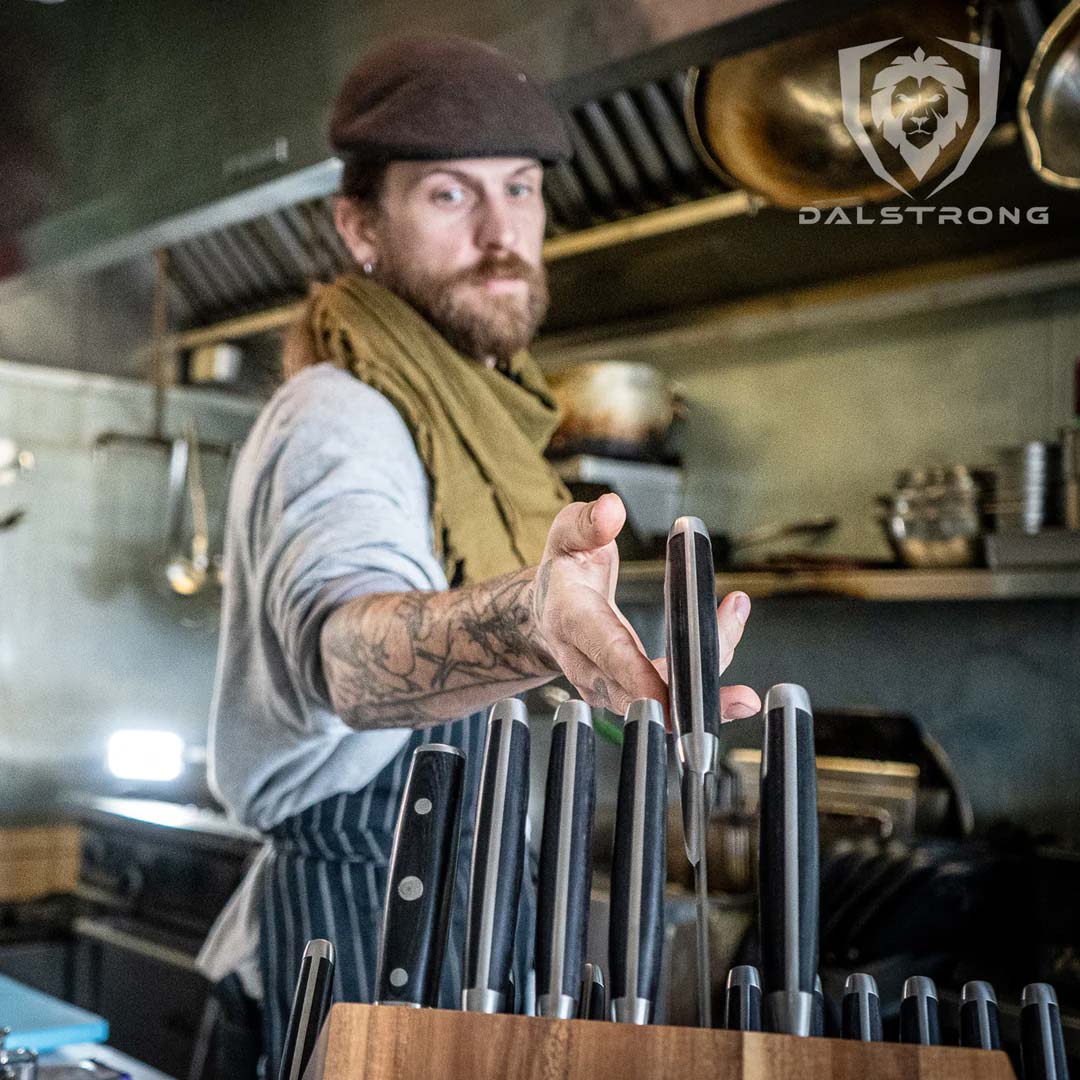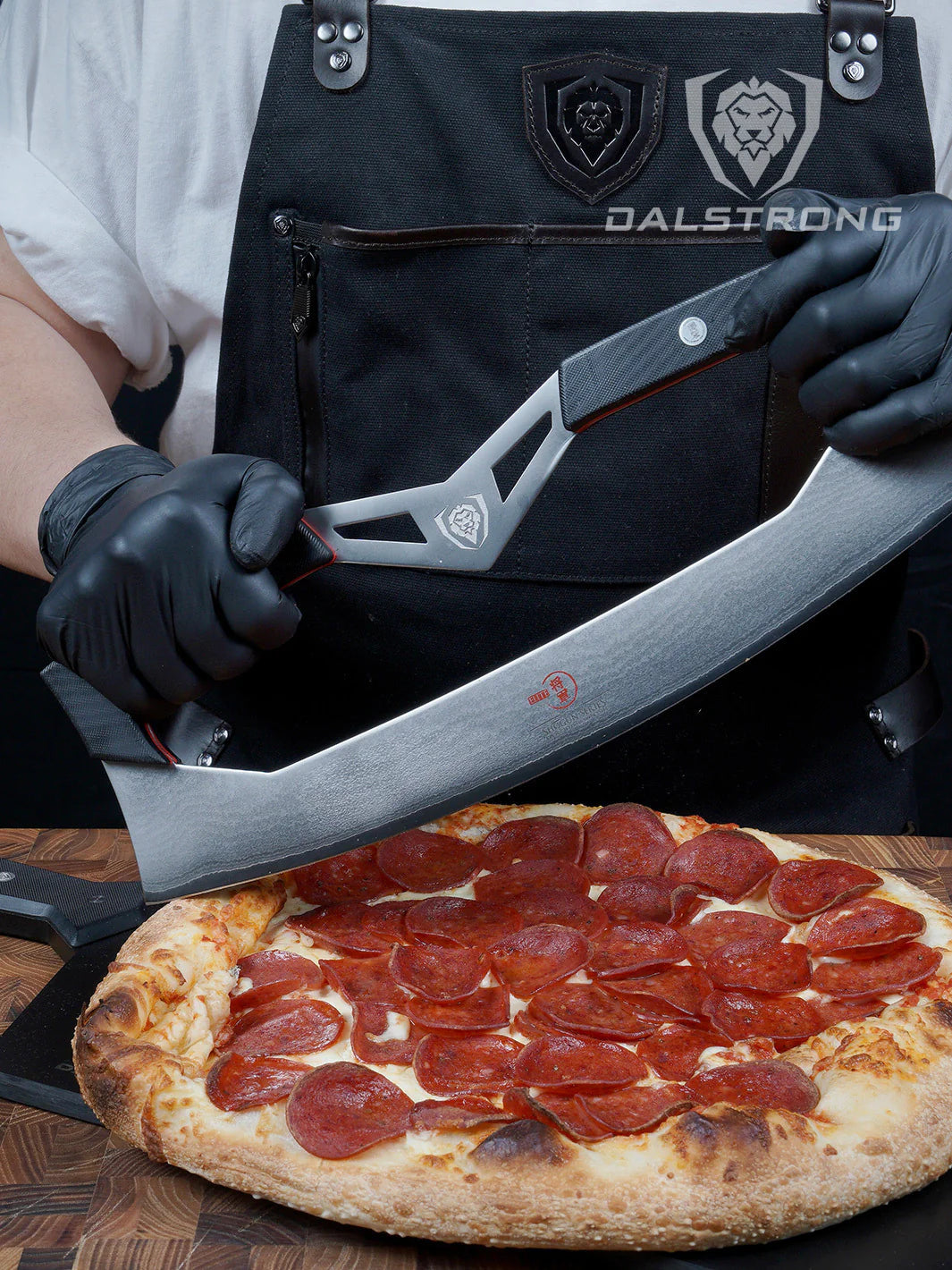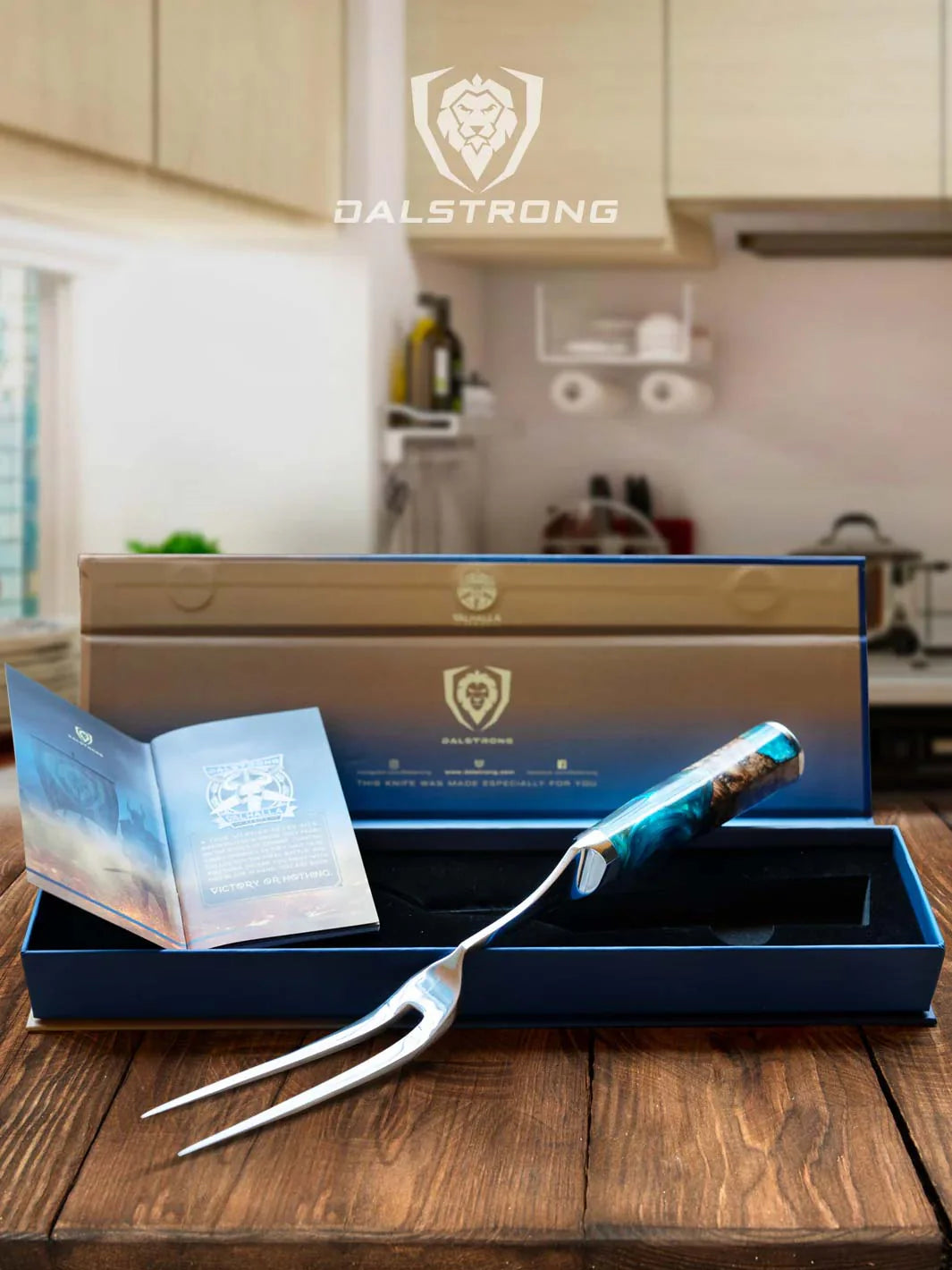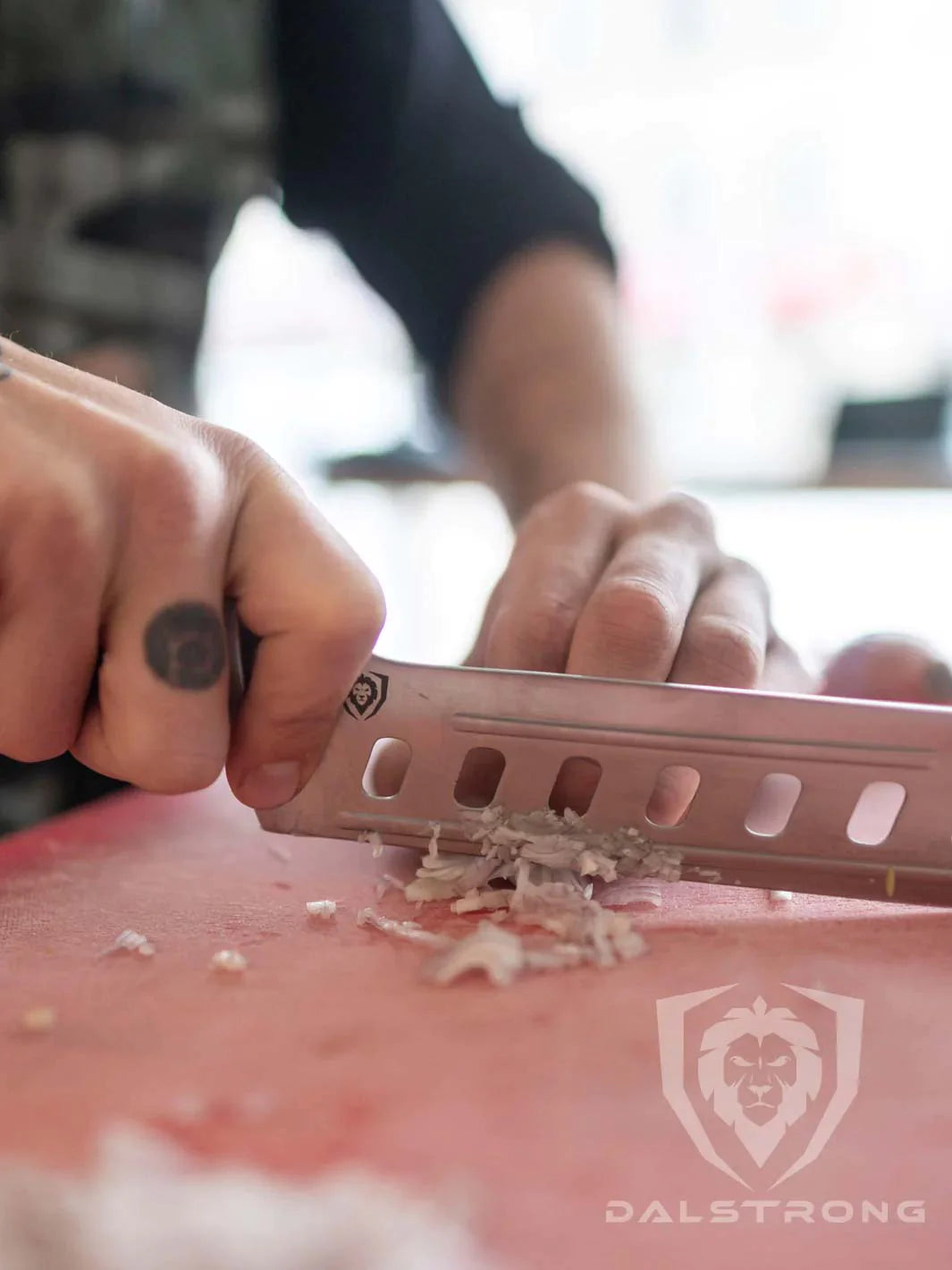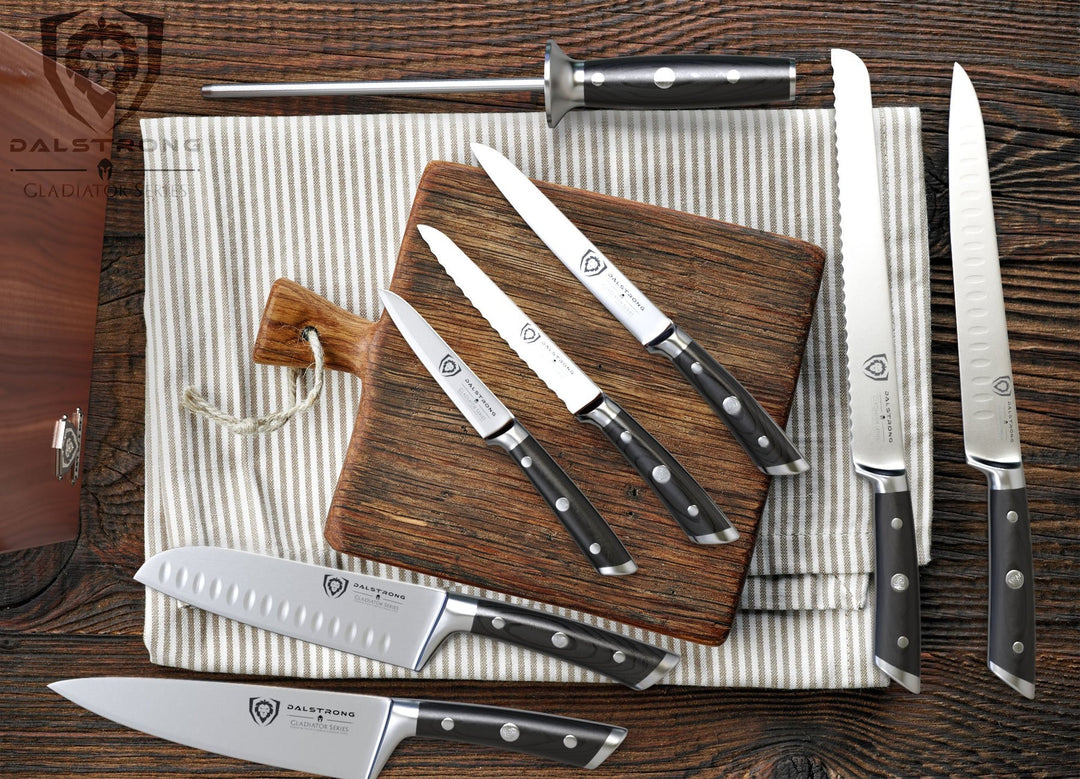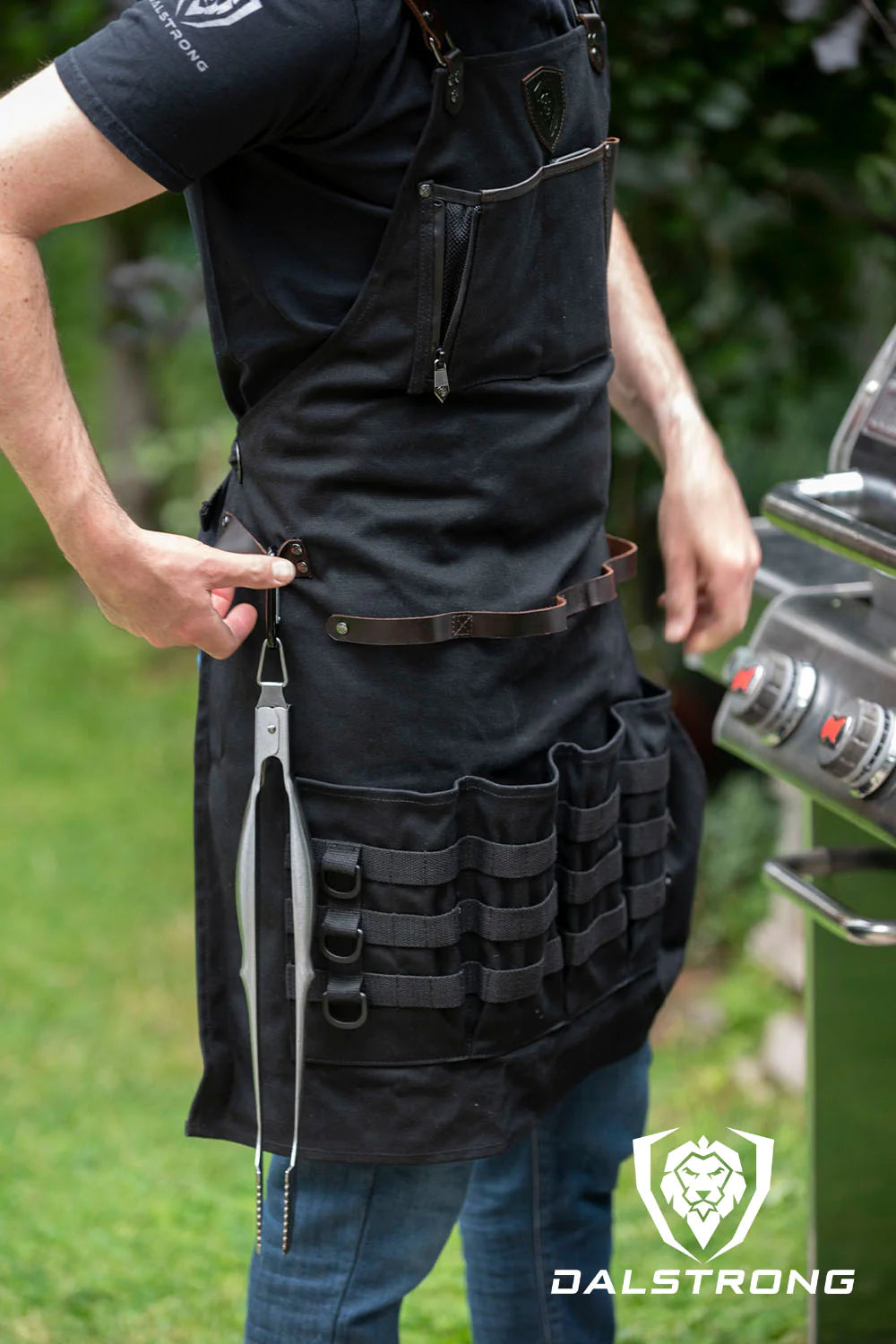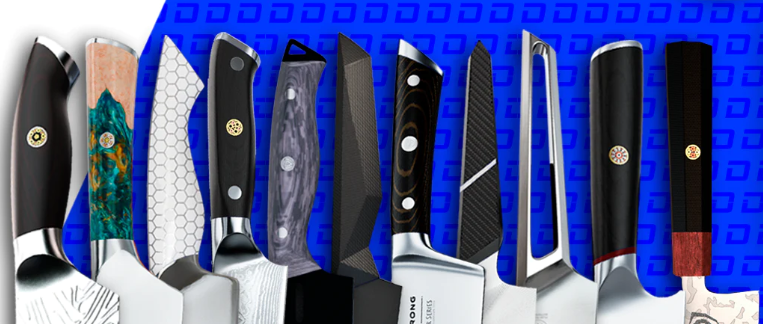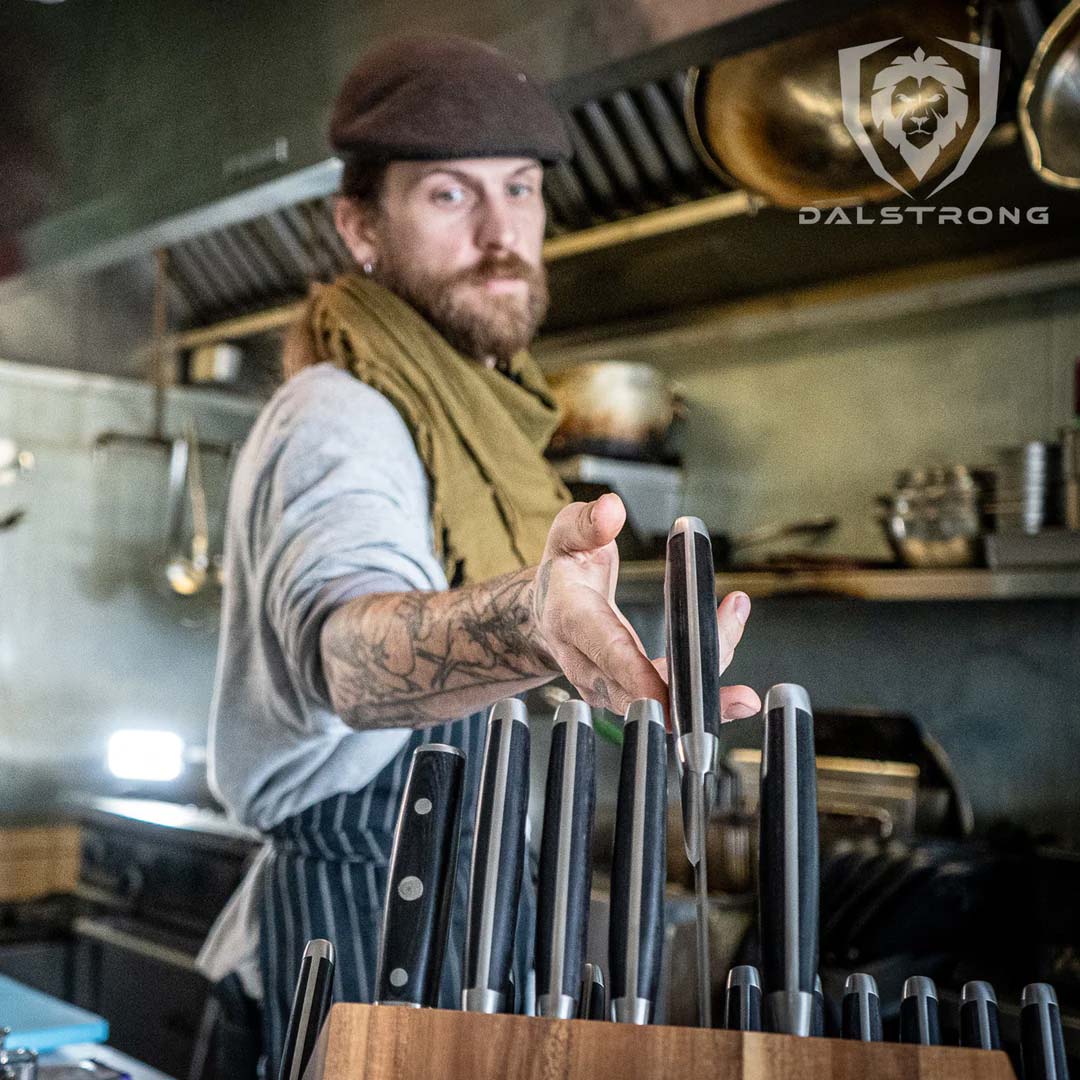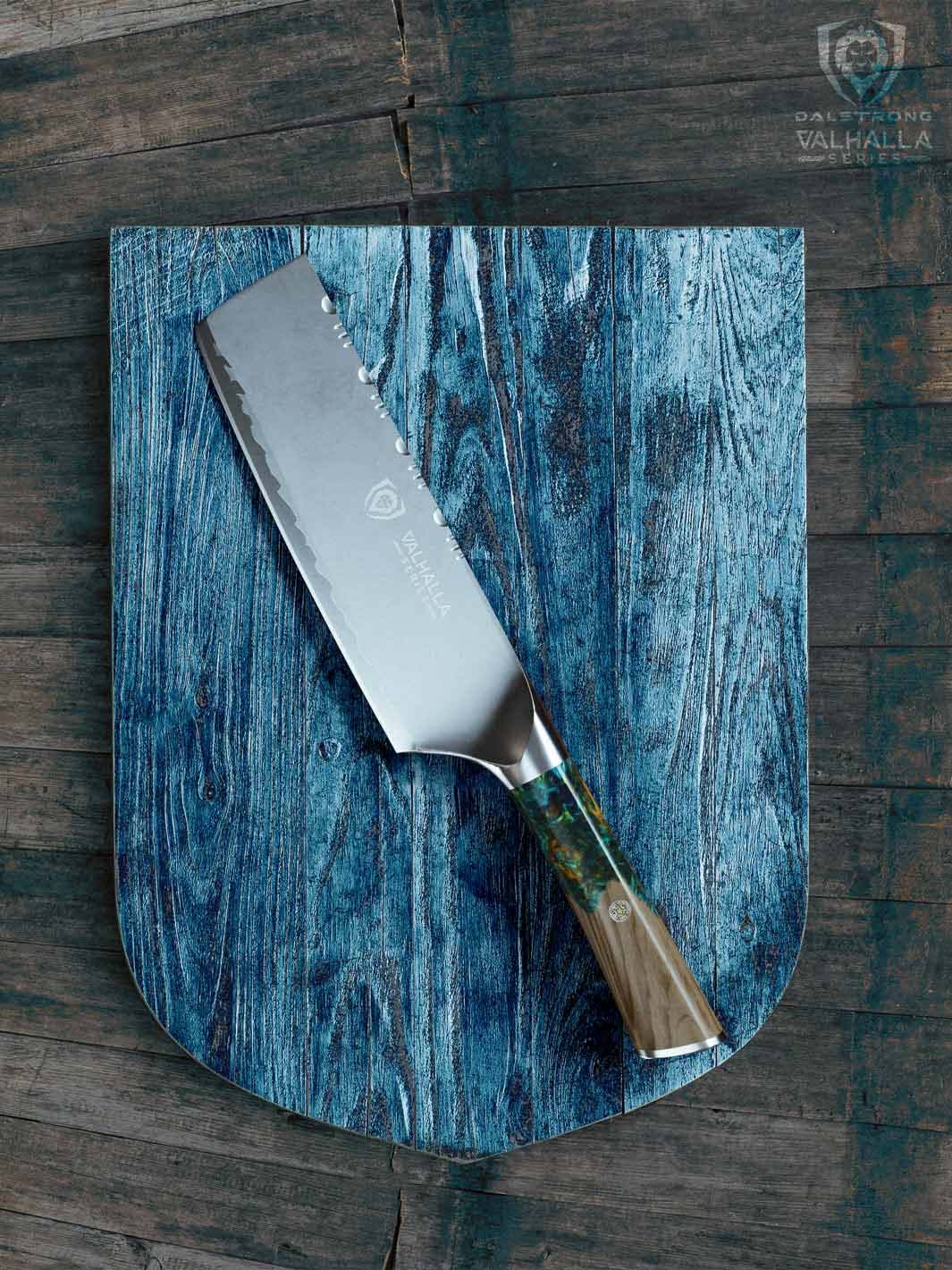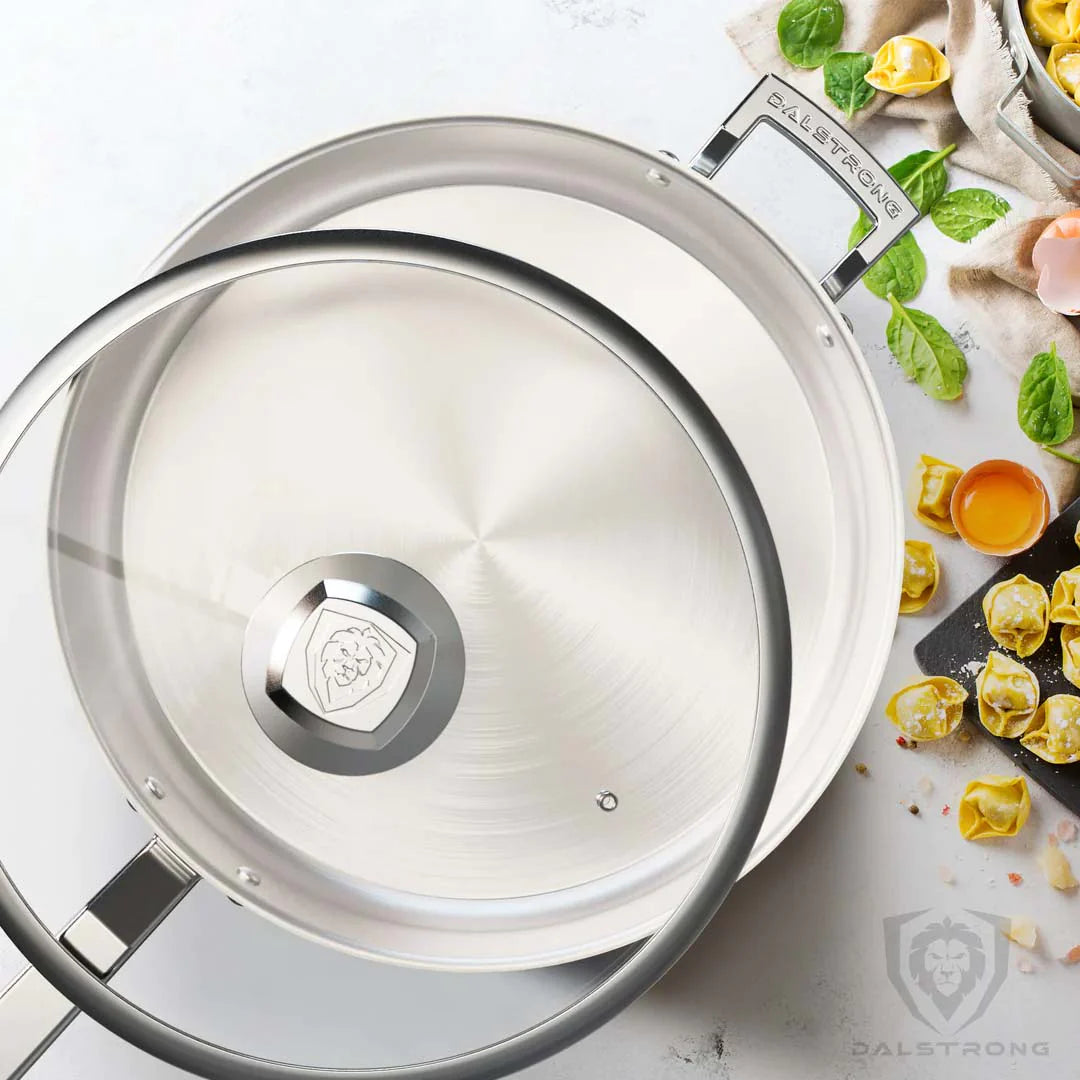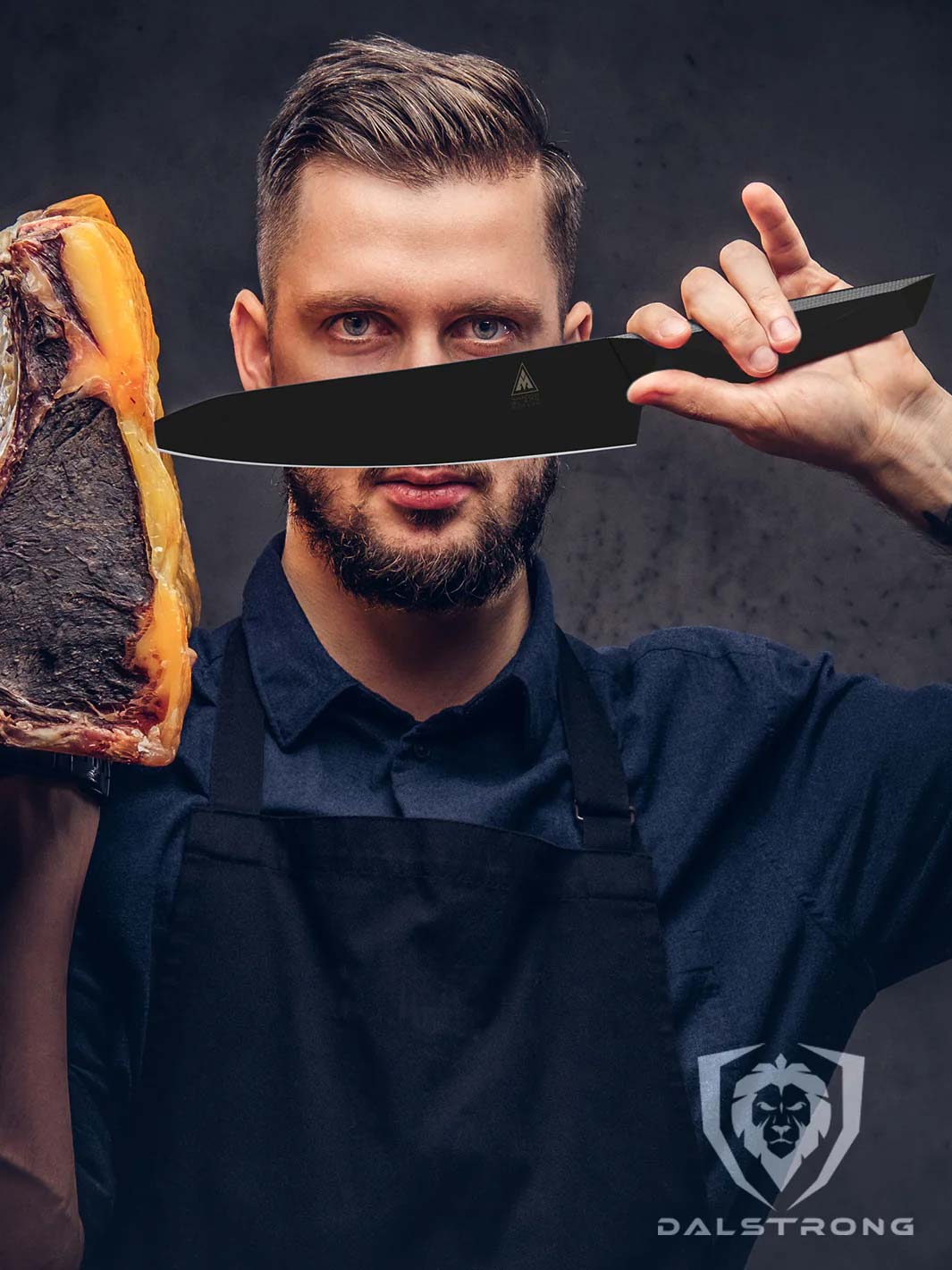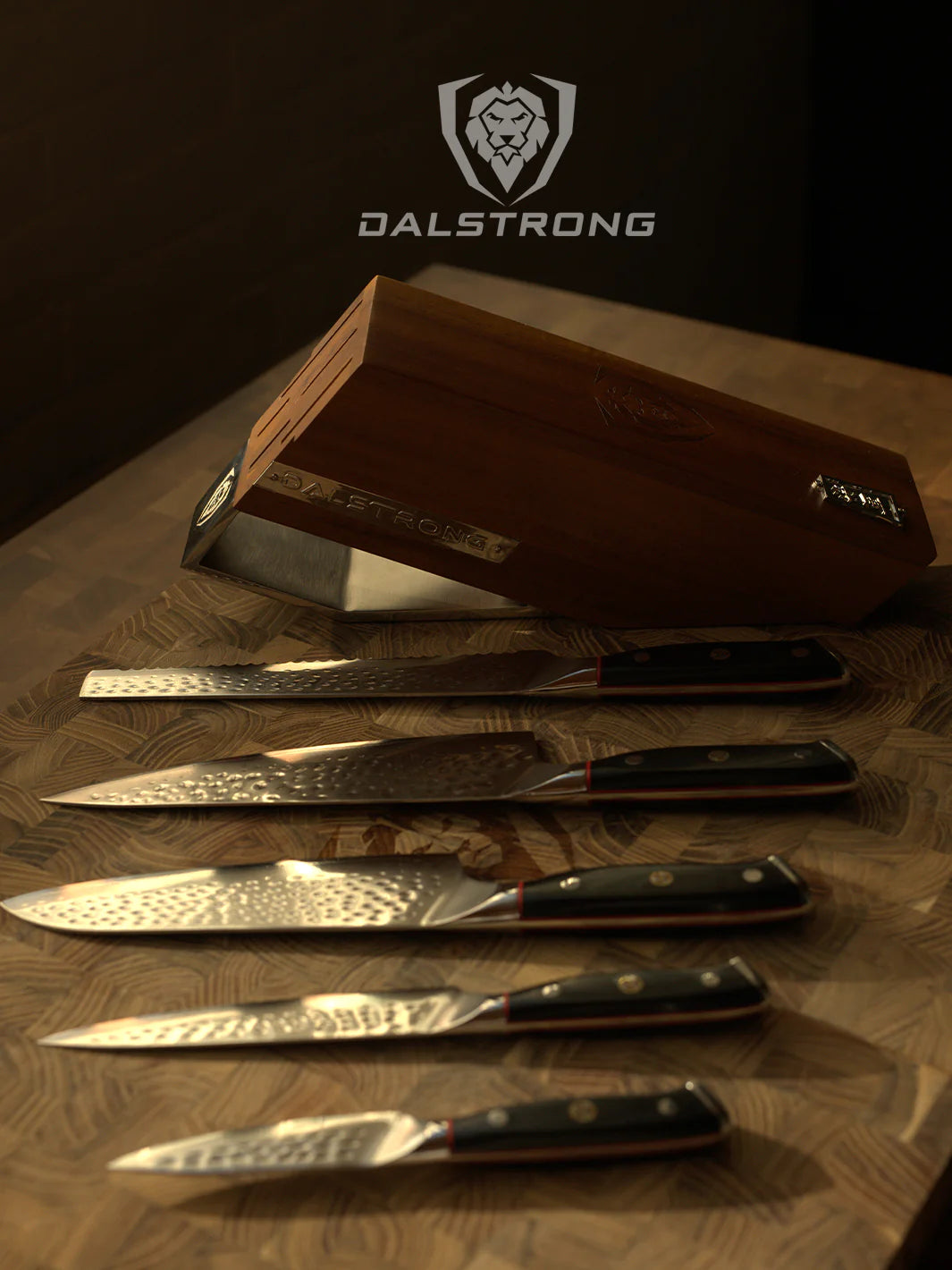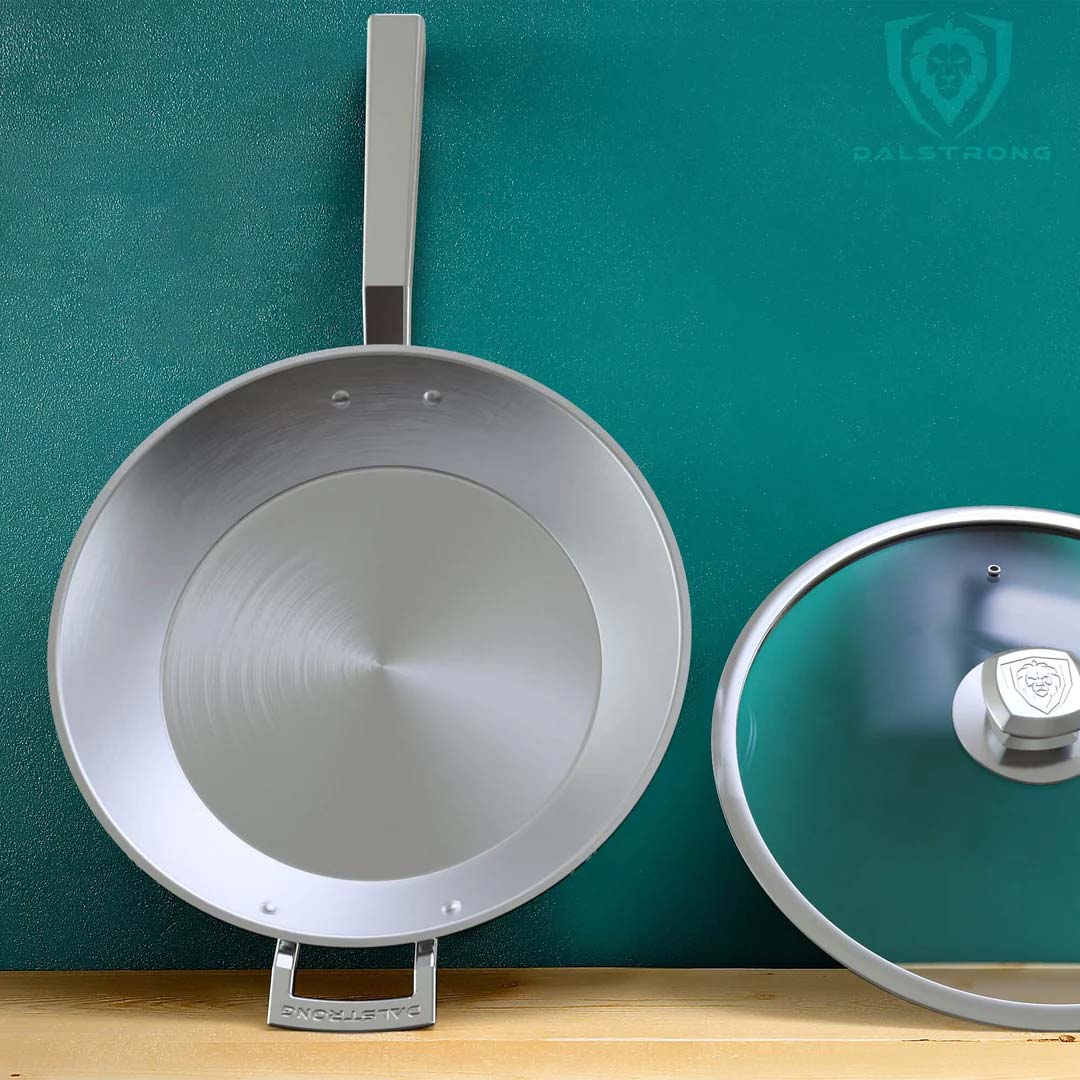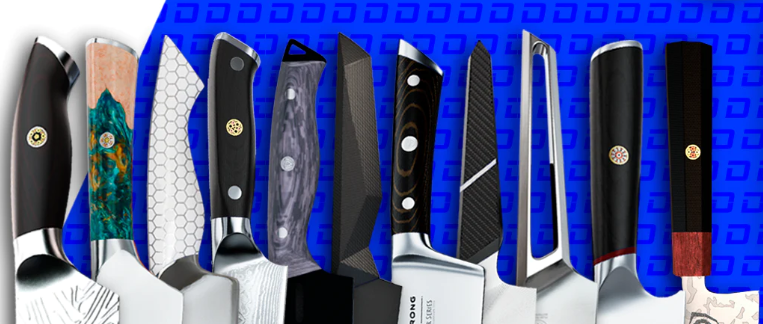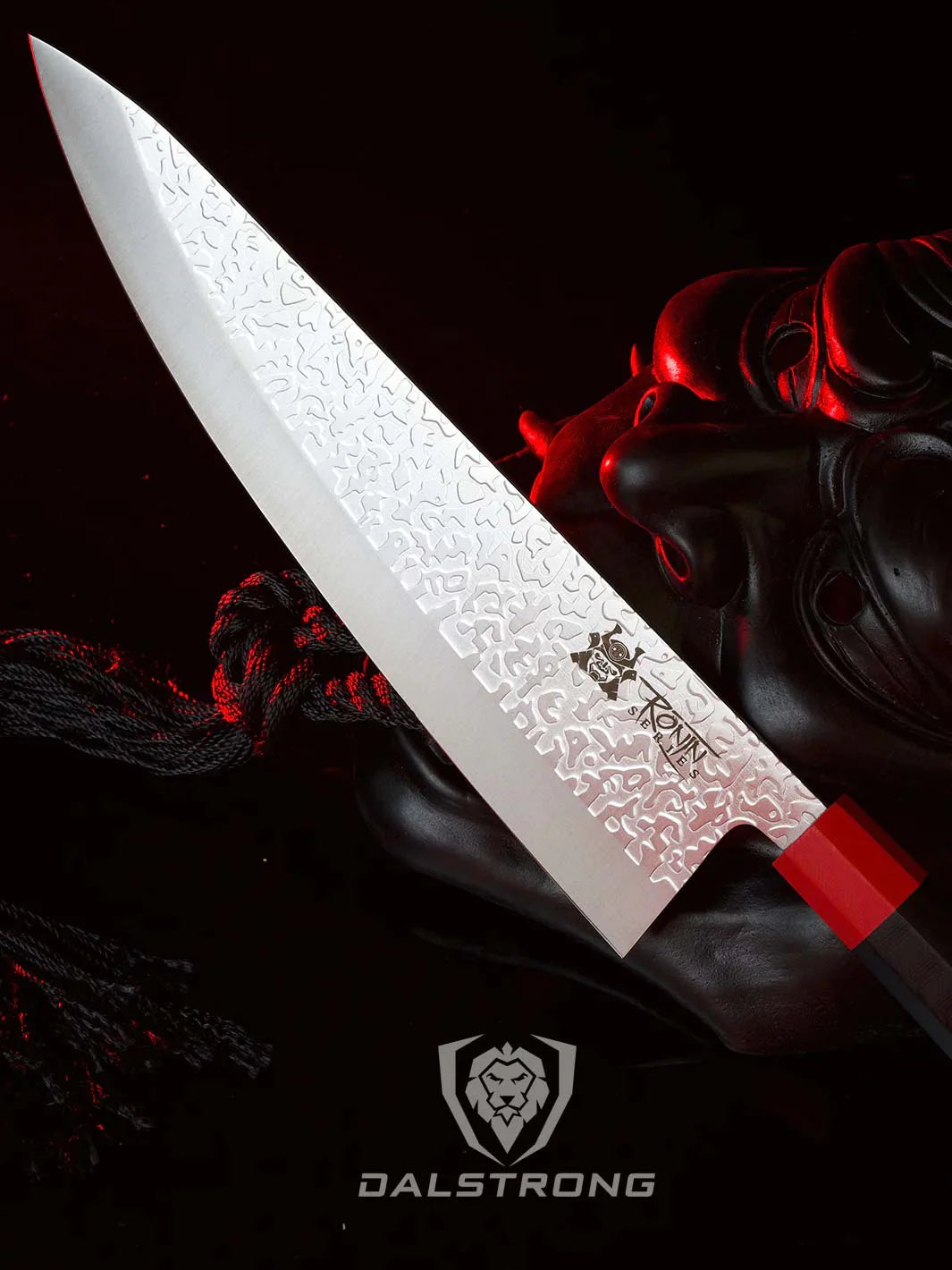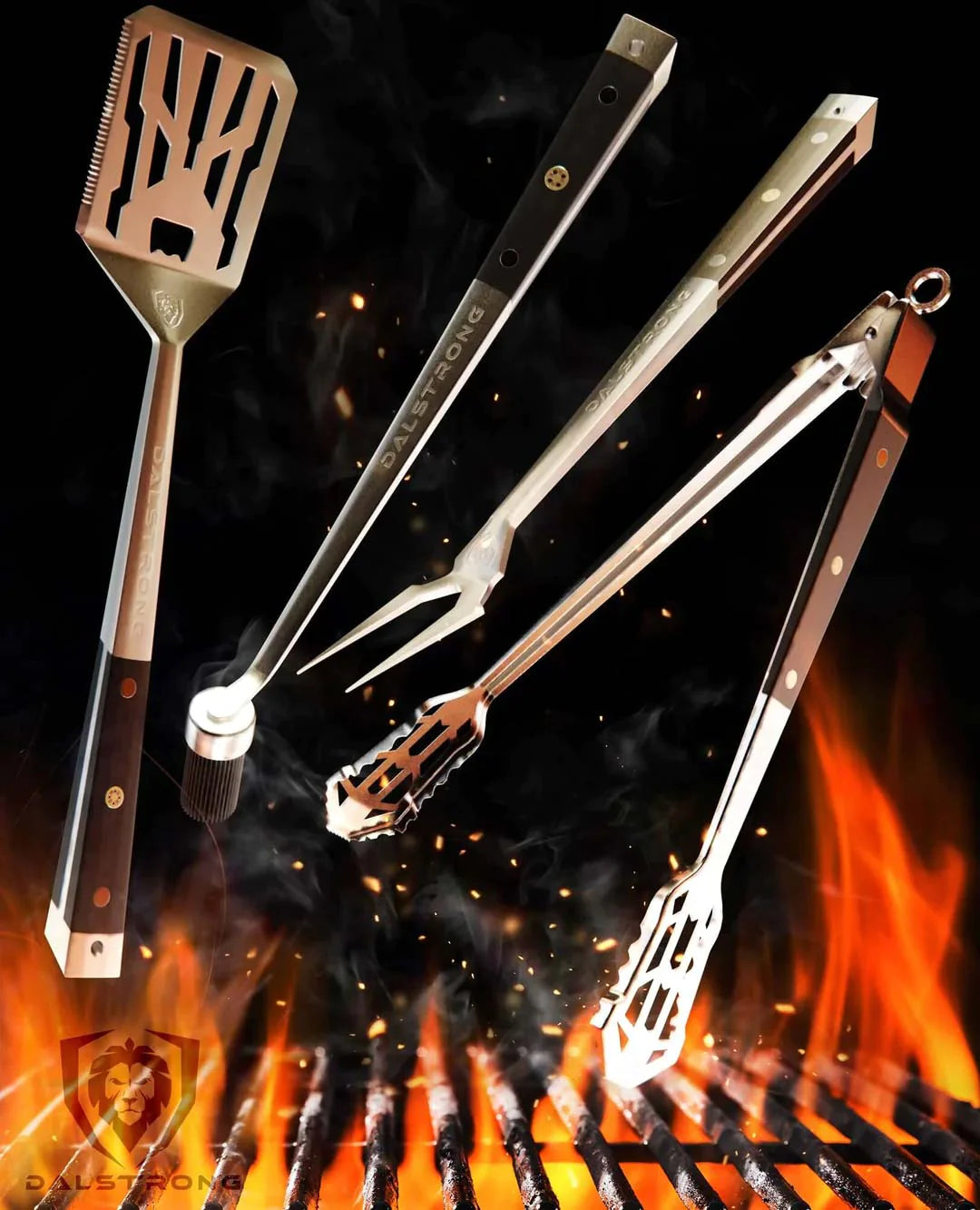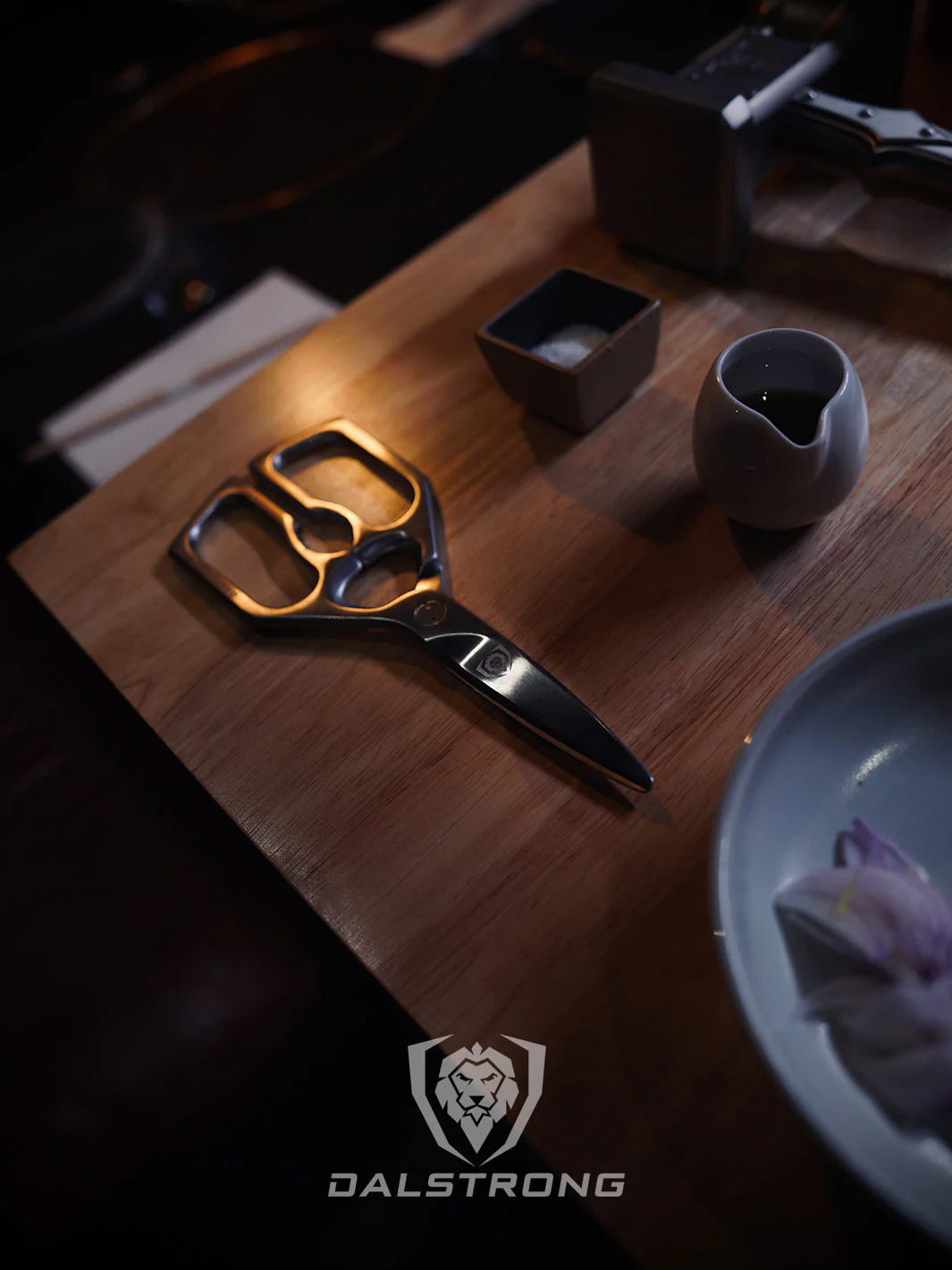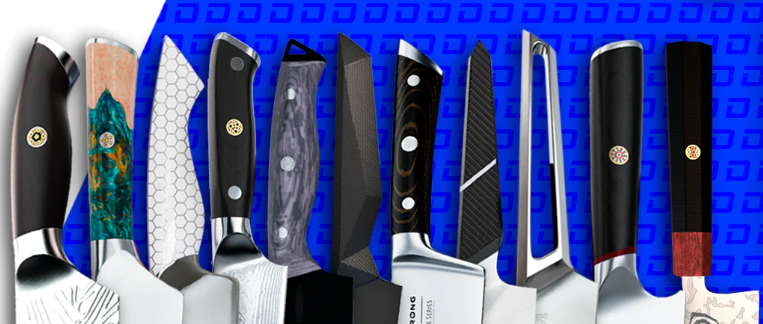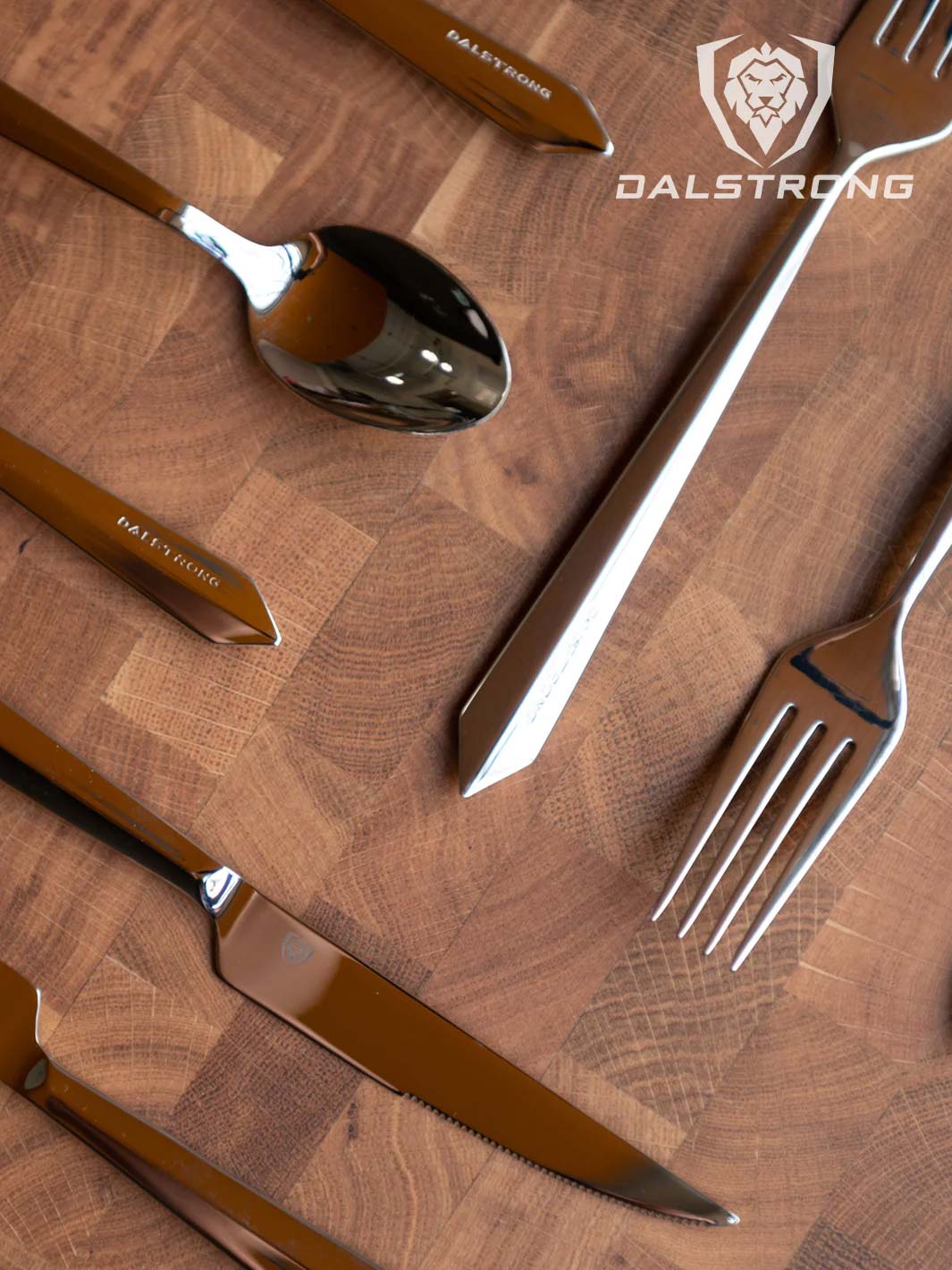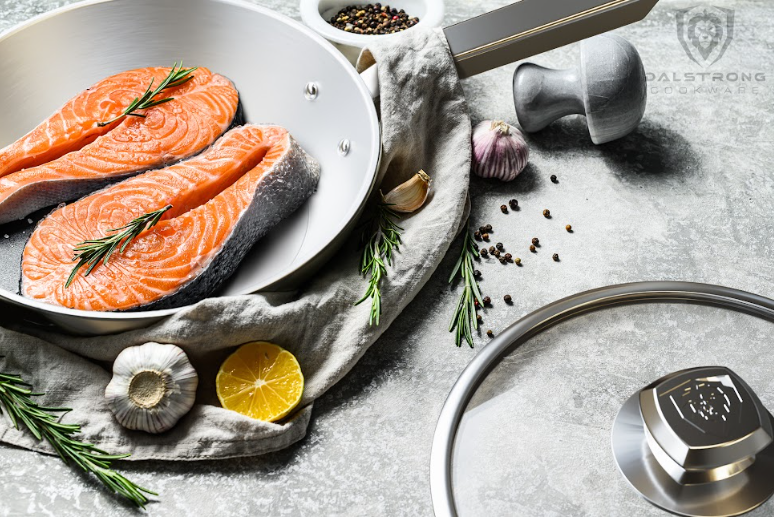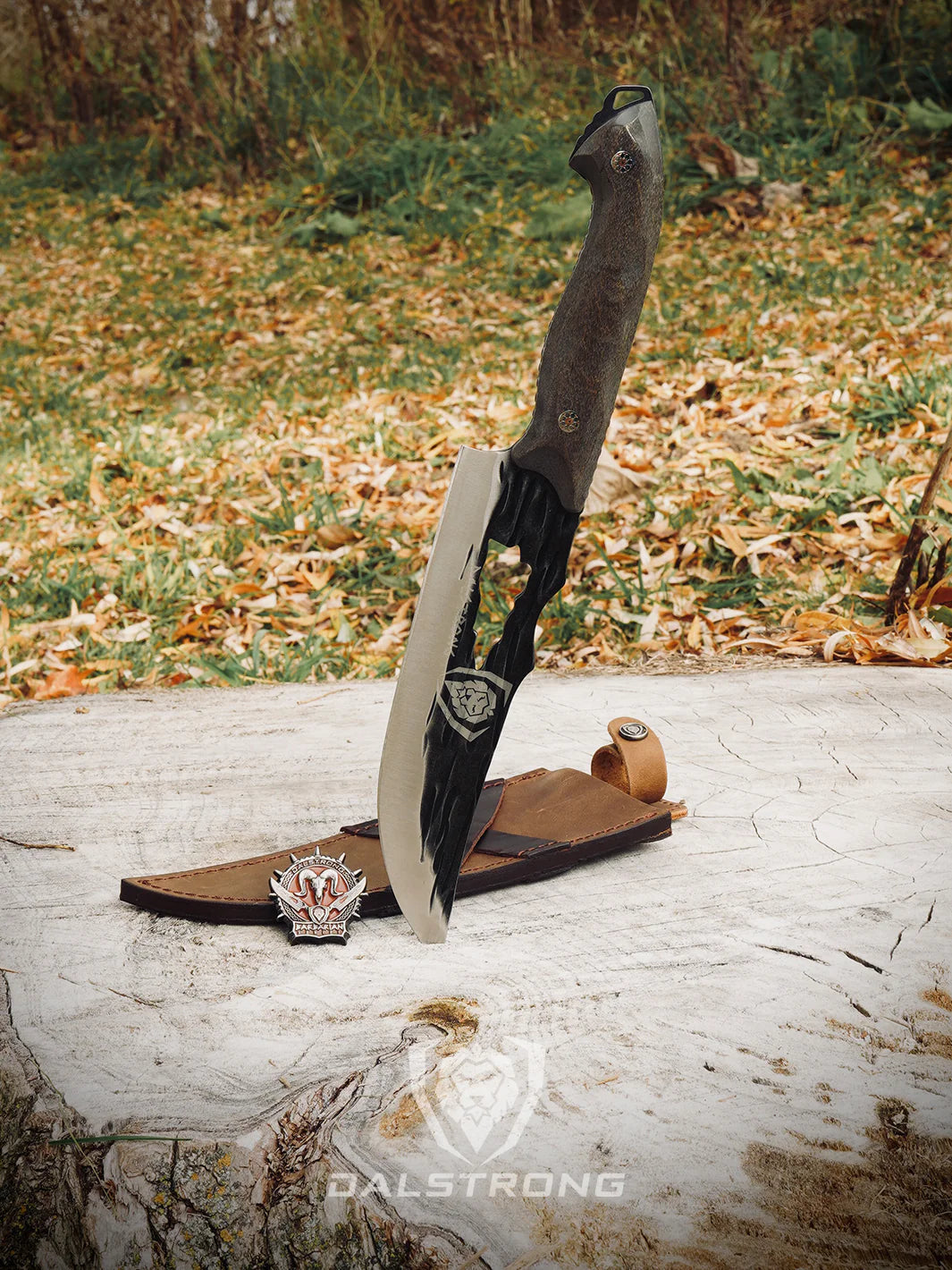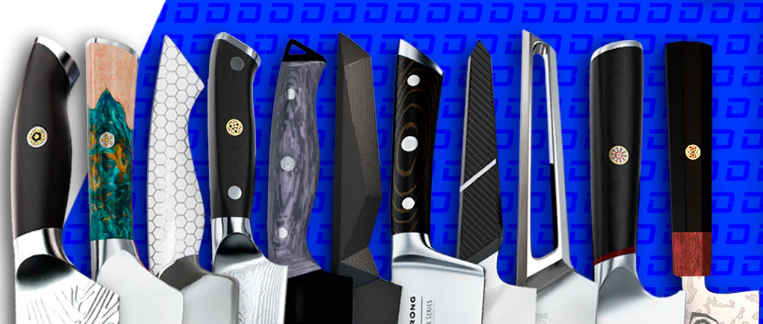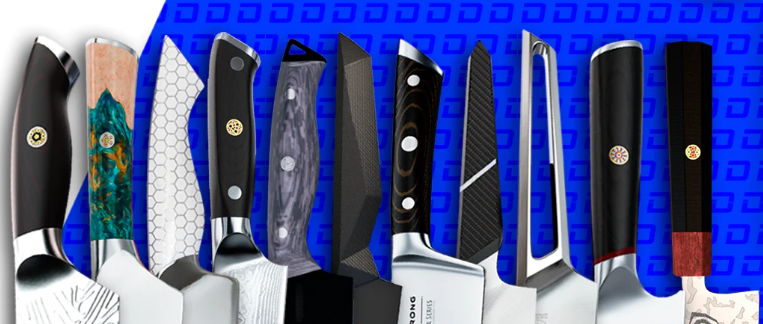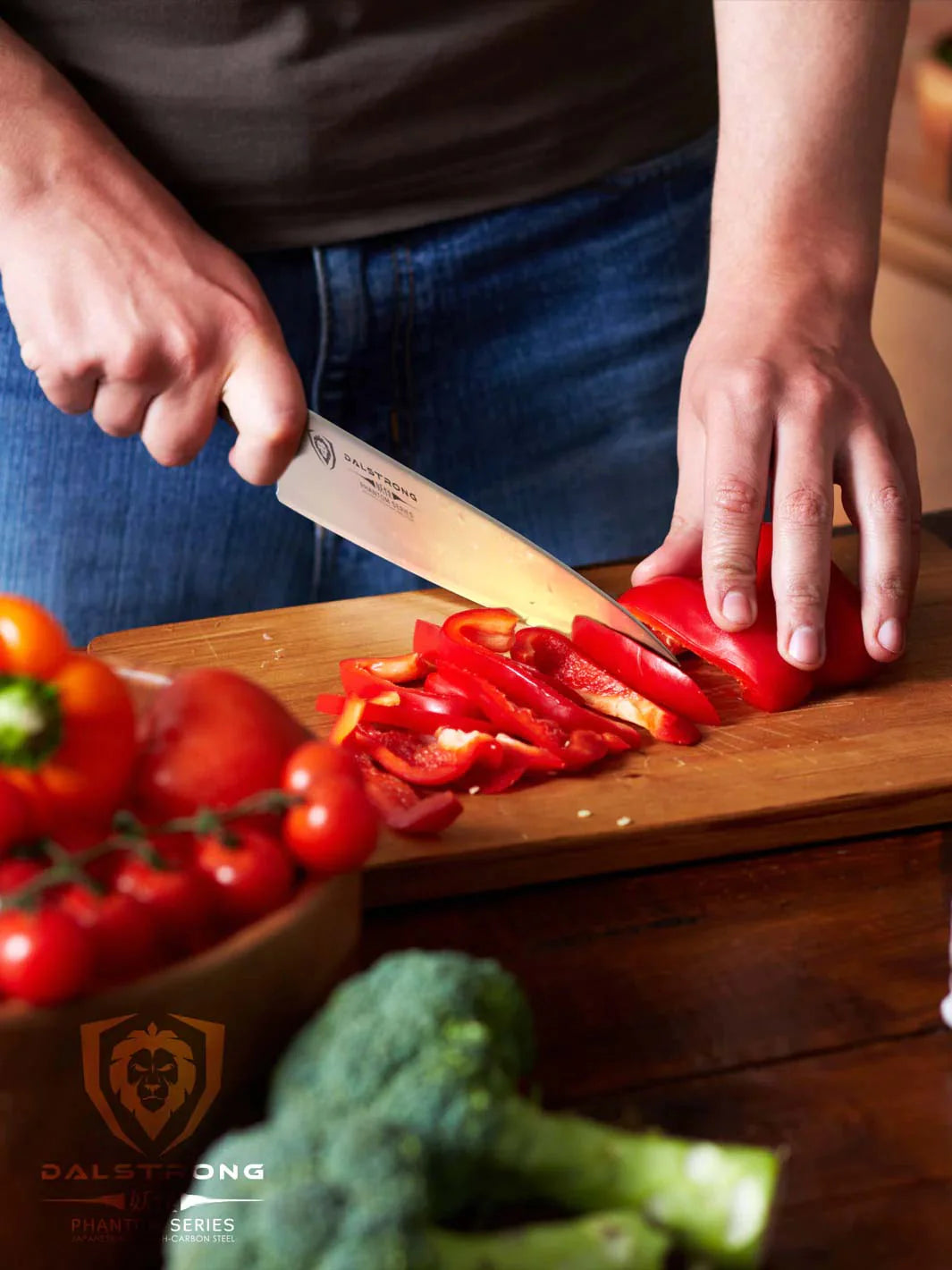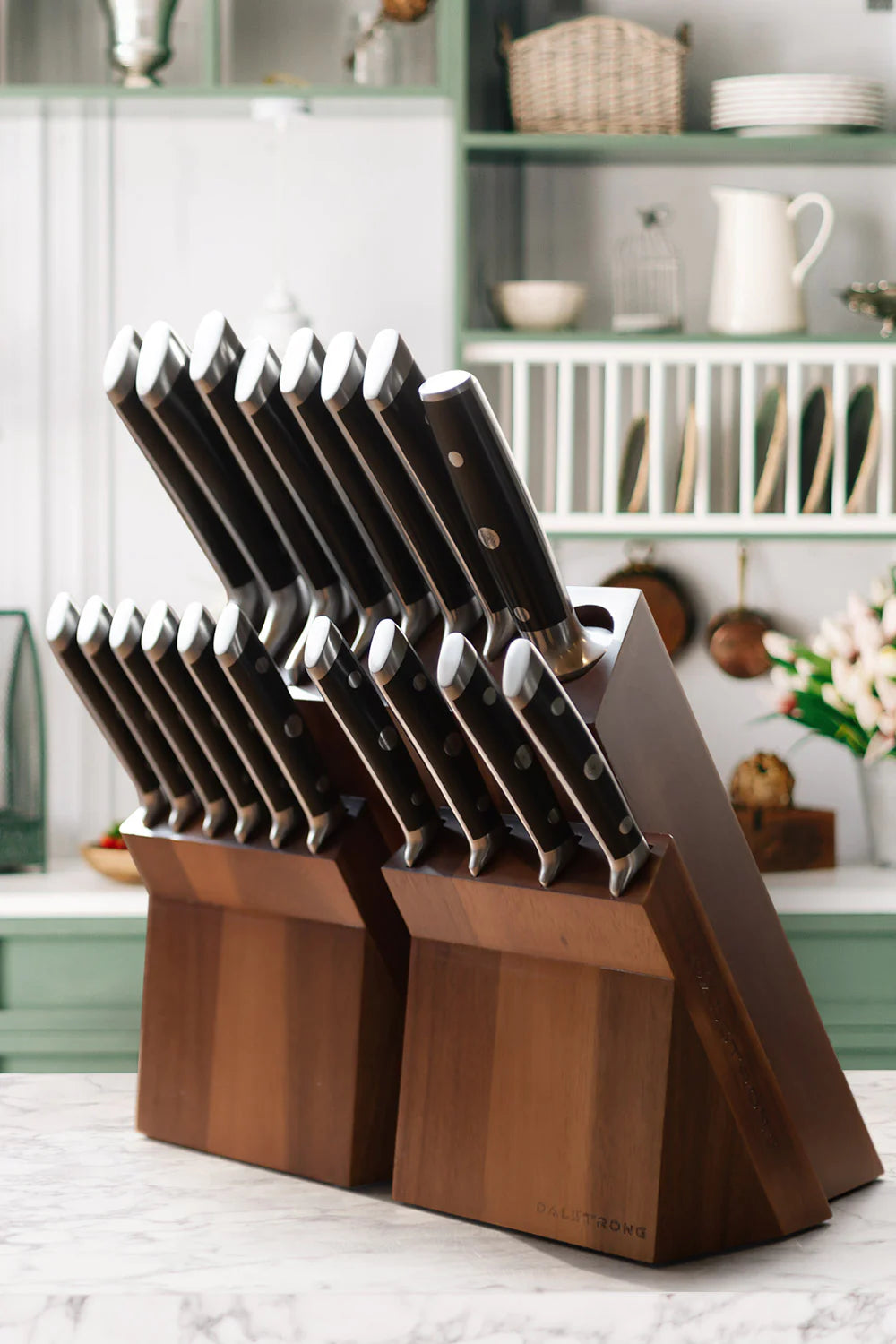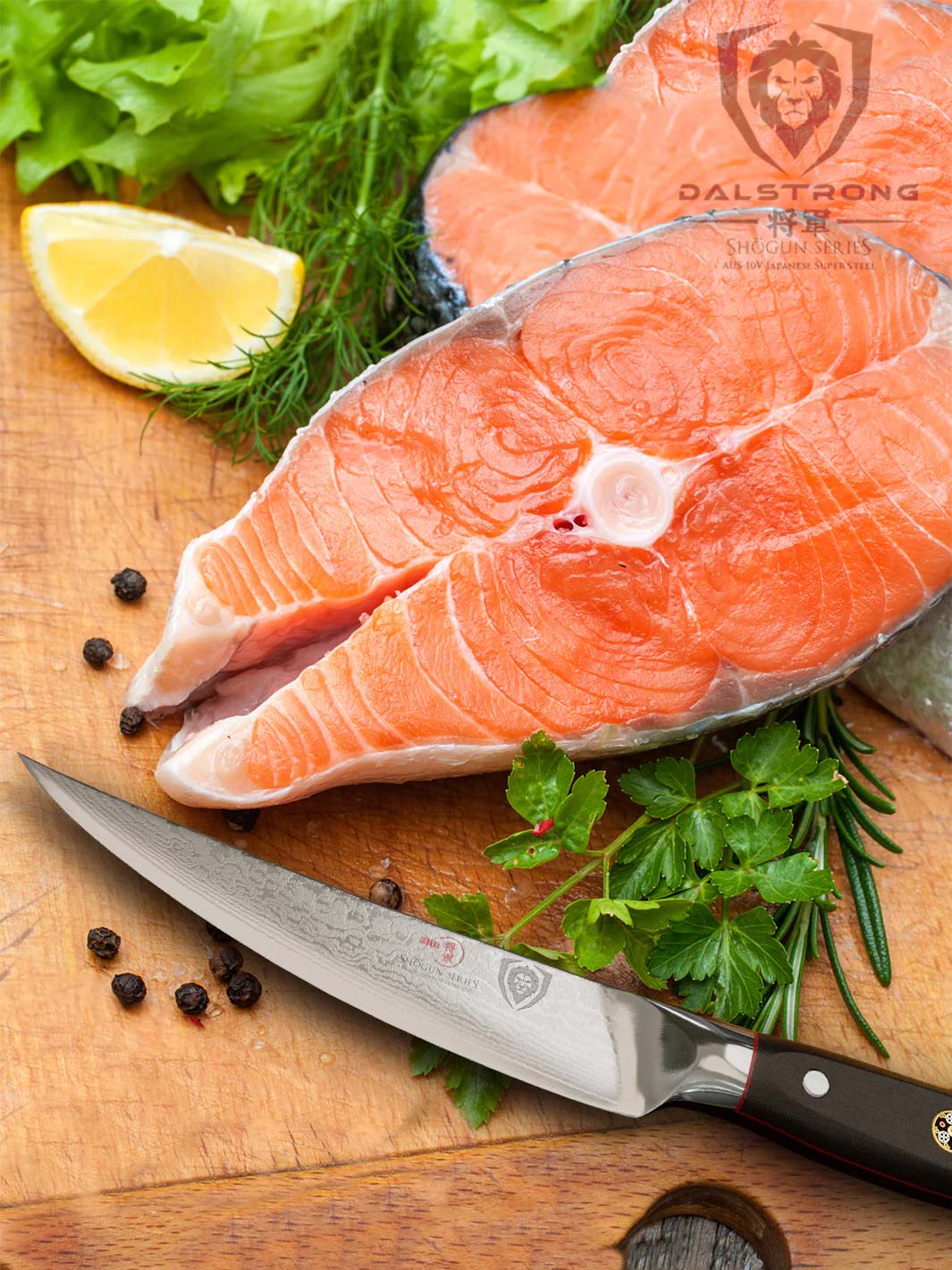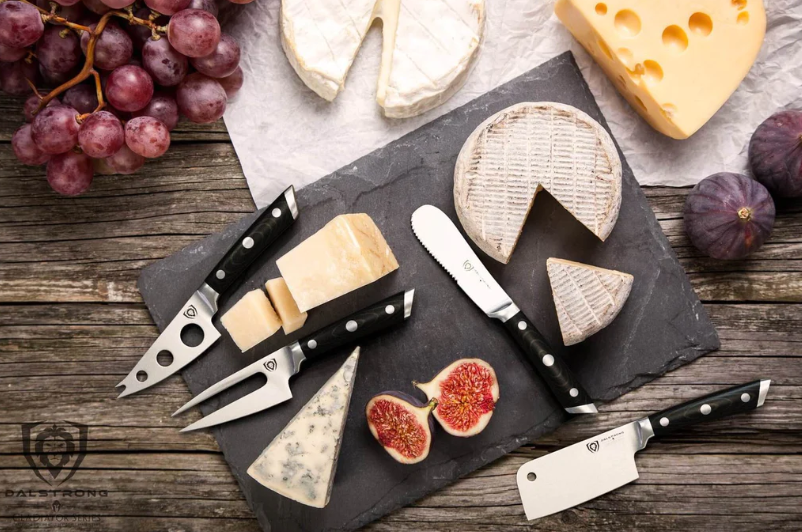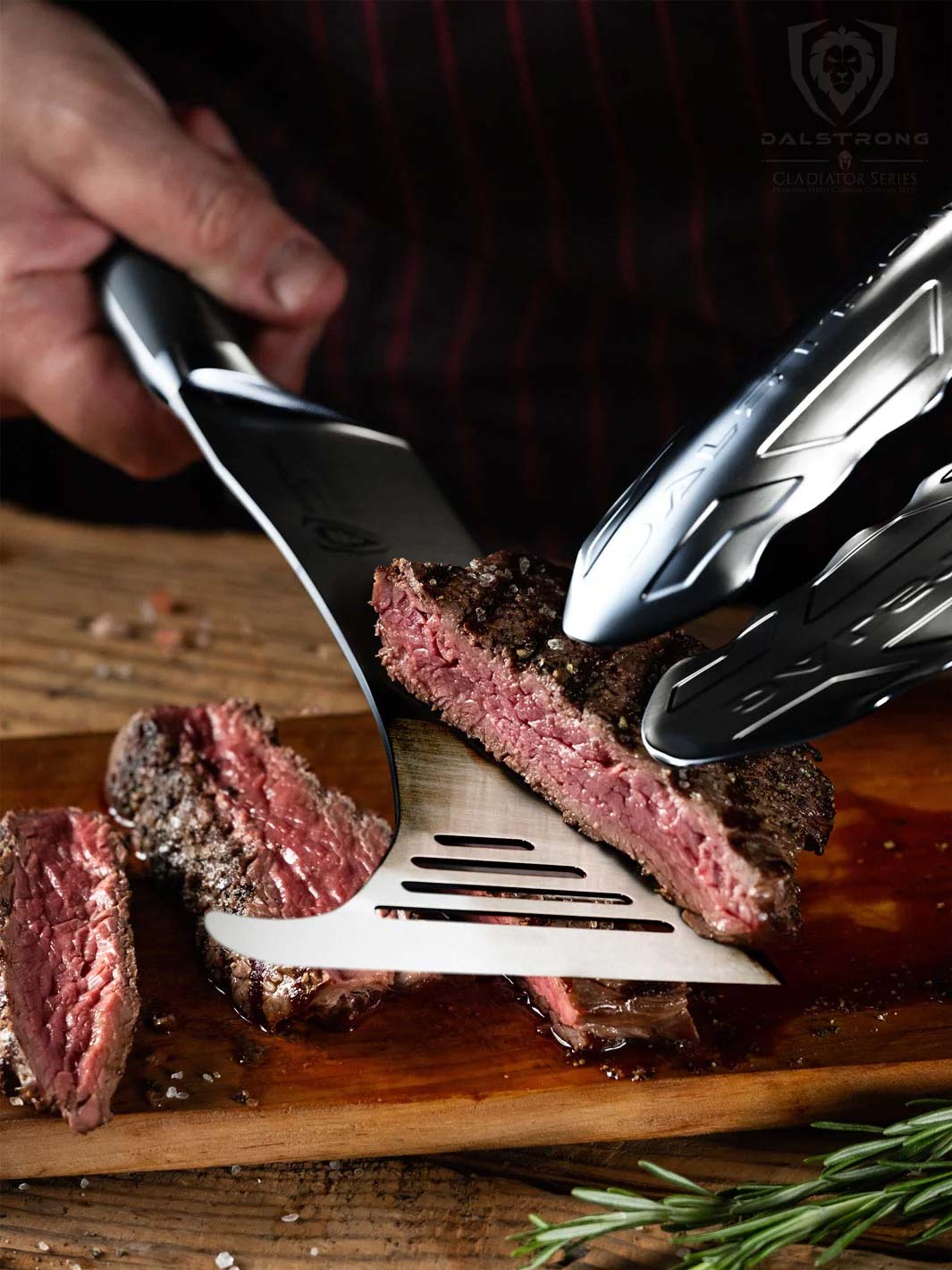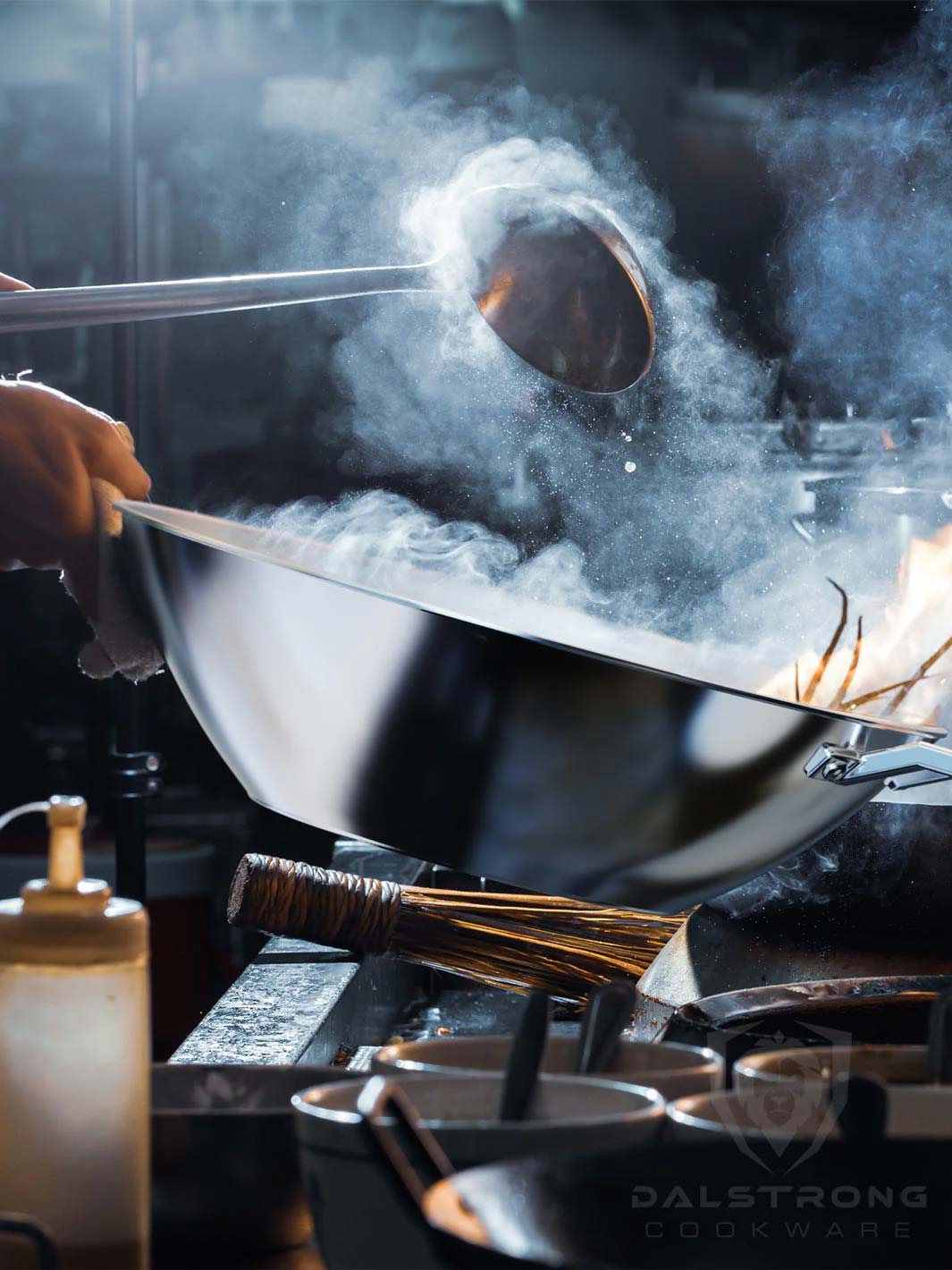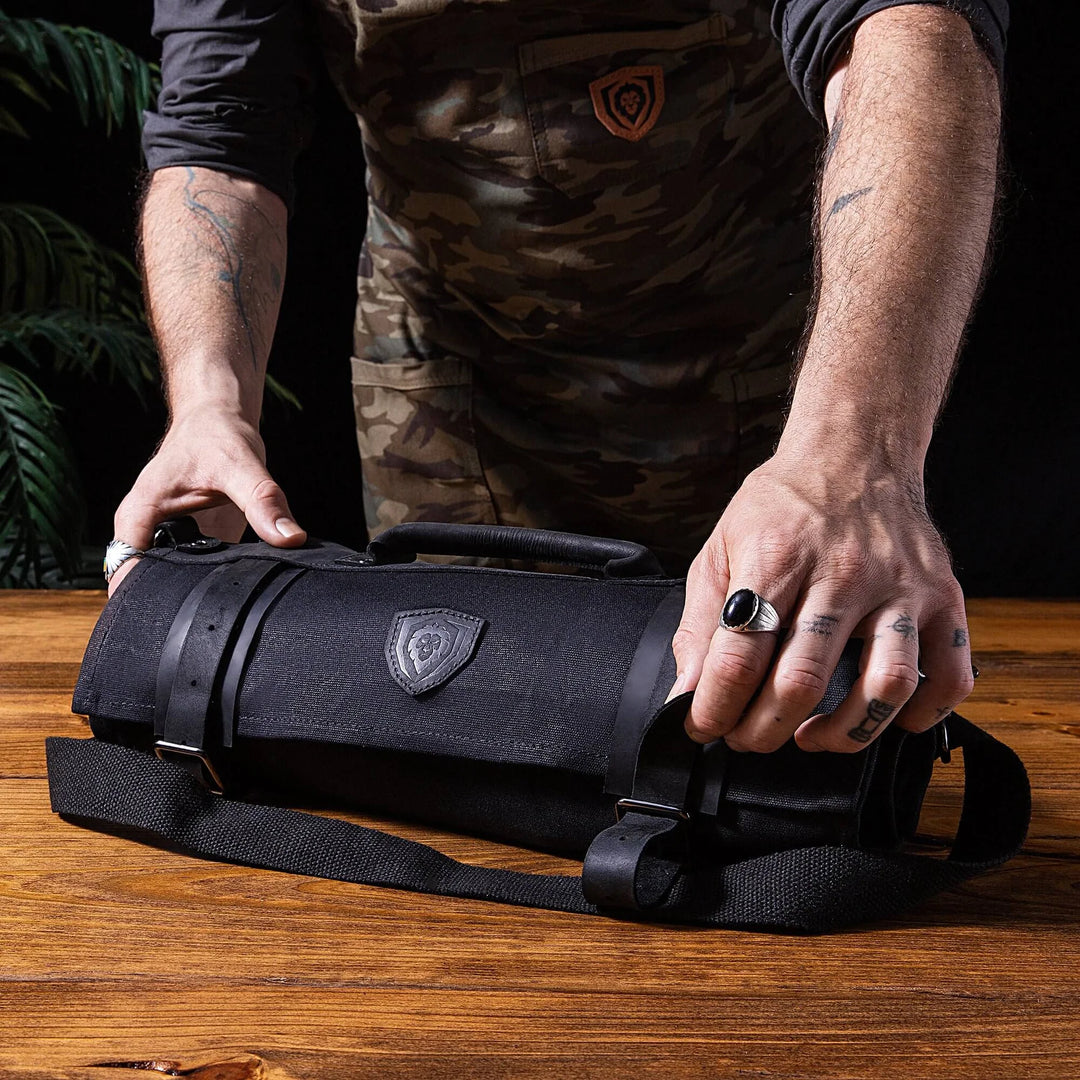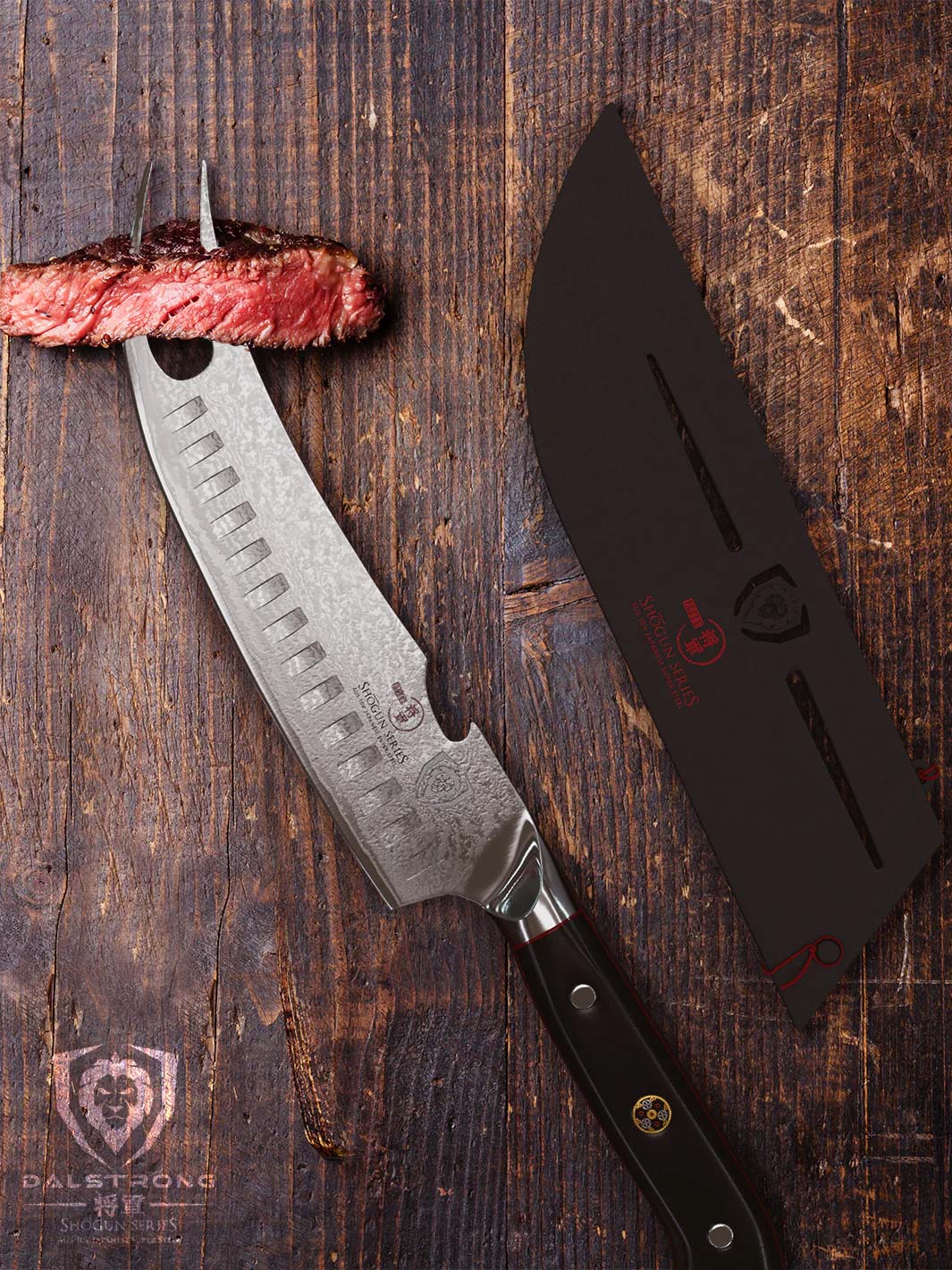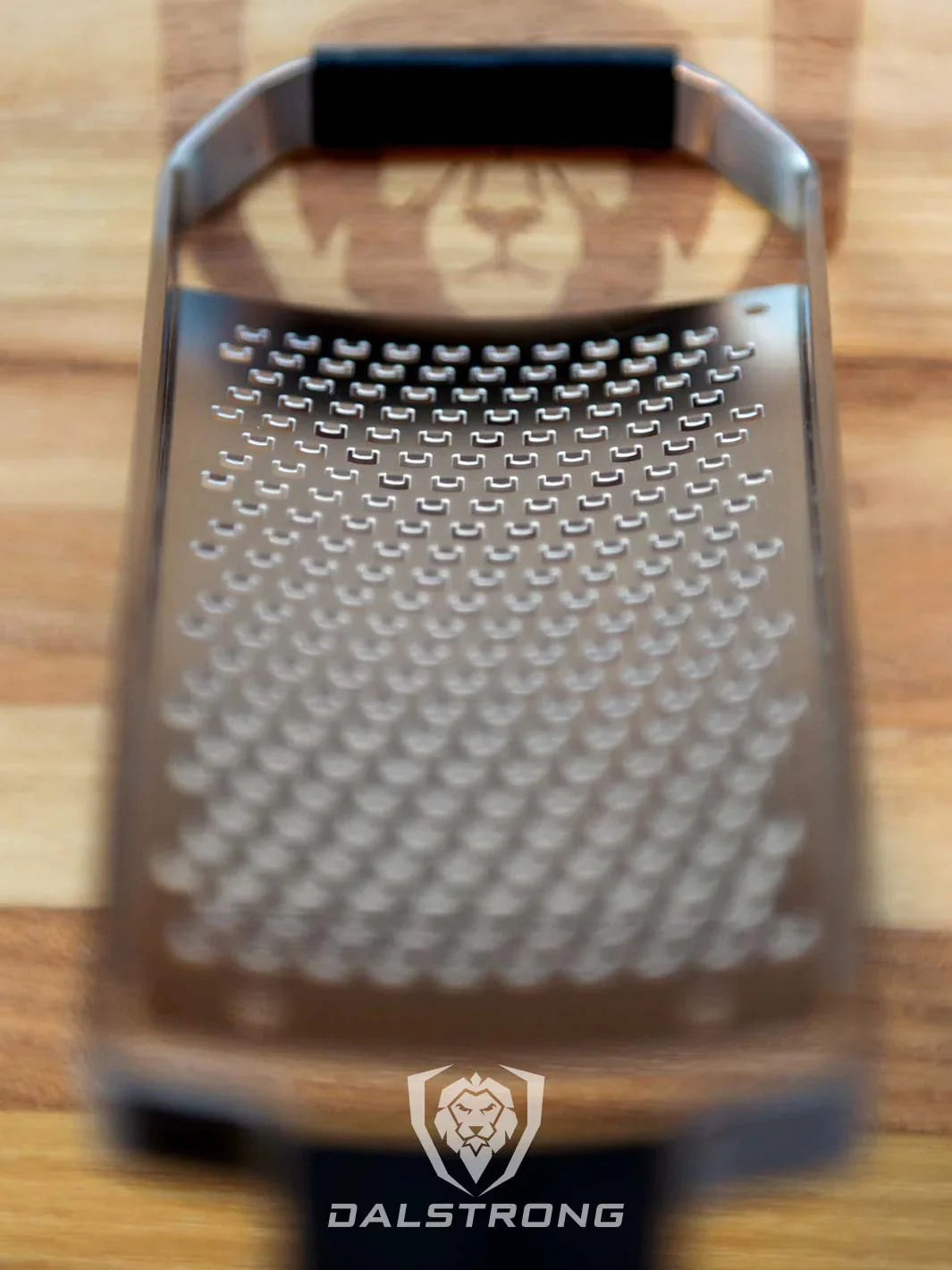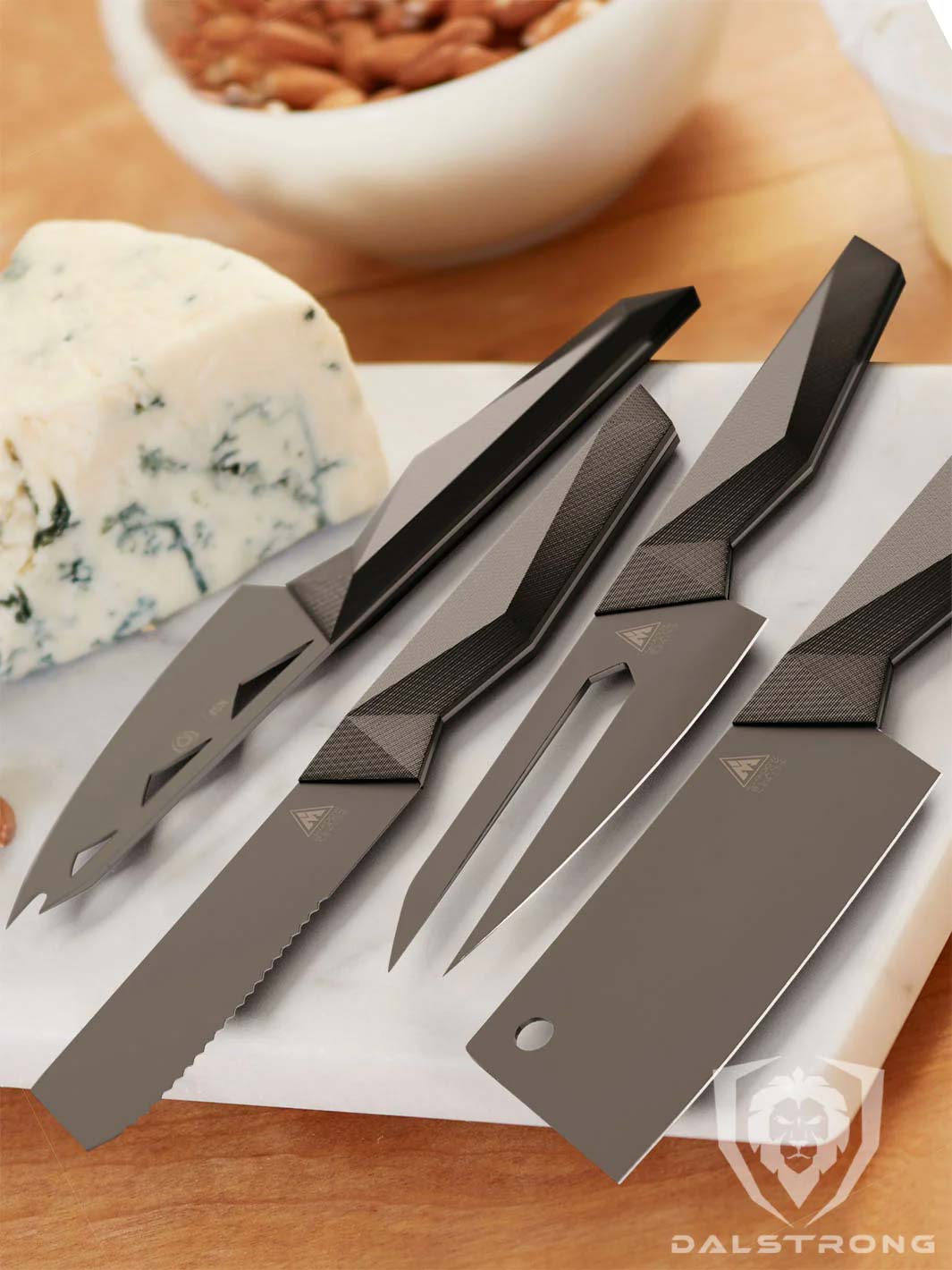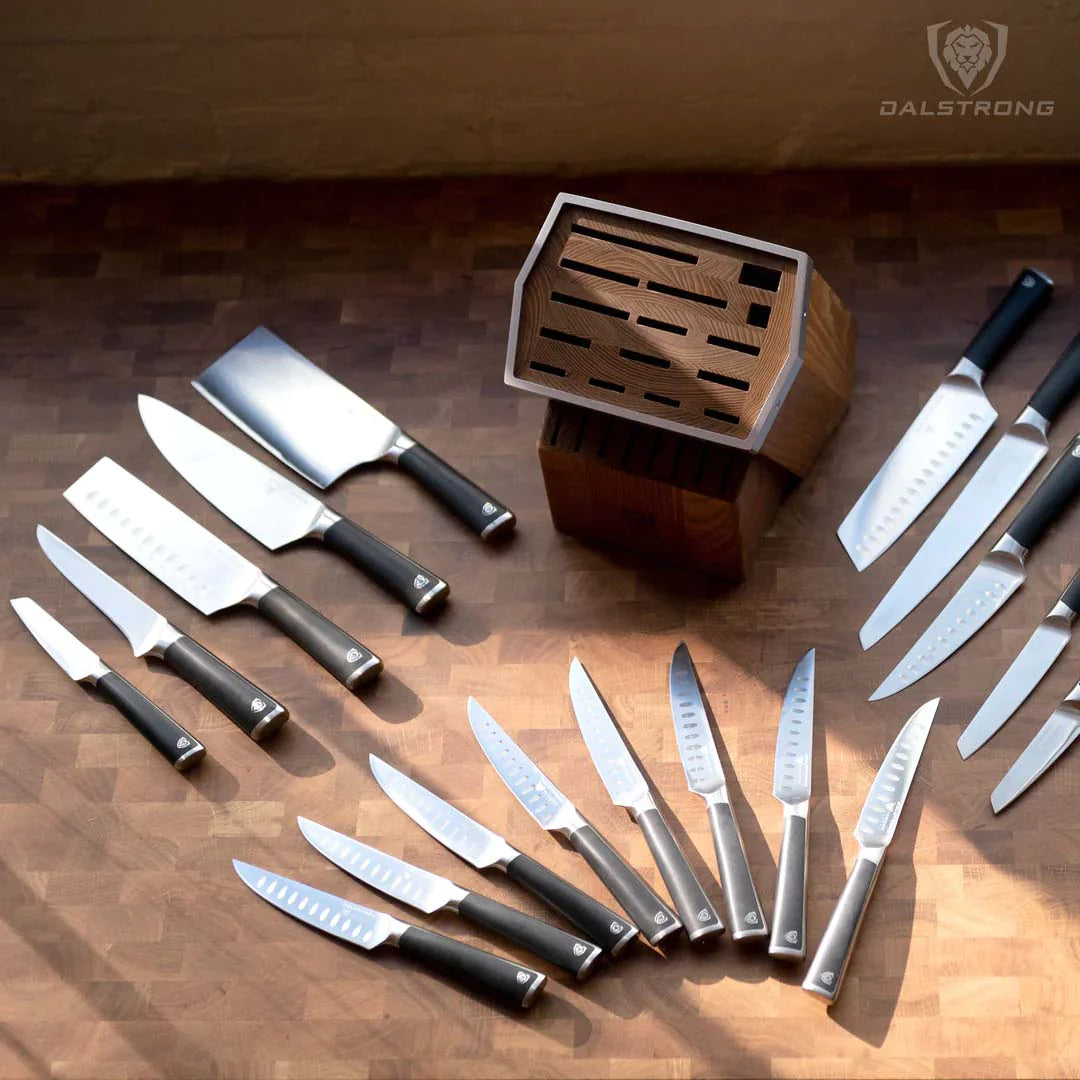Why The Knife Handle Is So Important
No matter how impressive your Damascus steel blade is, or how sophisticated your knife sharpening techniques are, a lousy knife handle can make chopping and slicing an annoying ordeal. Let's talk about knife handles – the unsung heroes of the knife world.
1. The Importance of Having a Good Knife Handle
A quality knife handle is not just about aesthetics or comfort – it's about your safety and the efficiency of your work. Think about it; you're not just holding the knife, you're maneuvering it, you're guiding it like a dance partner. If you’ve chosen wisely, your knife handle material – be it wood, bone, or even high-tech materials like G10 – will ensure that your grip is firm and reliable.
But there’s more. Some handles, especially in quality hunting knives and handmade knives, come with textured patterns or indents designed specifically to align with the contours of your hand. Whether it's canvas micarta or textured G10, this gives you that extra layer of grip and control. No more accidental slips that turn a kitchen project into a first-aid situation.
The subtle ways a handle affects you
 Kiritsuke Chef's Knife 8.5" Collector Set | Omega Series | Dalstrong
Kiritsuke Chef's Knife 8.5" Collector Set | Omega Series | Dalstrong
You might not realize this, but a well-designed knife handle does more than just sit prettily in your hand; it actually helps distribute the force you apply, reducing the risk of repetitive strain injuries. The handle scale, handle washers, and even that fancy mosaic pin all work in unison to create a balanced tool.
In folding knives, for example, the handle washers ensure that the blade unfolds smoothly, reducing the chance of it snapping back unexpectedly. For kitchen knife handles, the balance between the blade and the handle can actually make you a more efficient chef. Ever tried mincing garlic finely with a poorly balanced knife?
Also, let’s talk about handle spacers. These little guys, usually a thin piece of material, create distance between different parts of the knife. They play a key role in the knife's balance, often made of lightweight materials like carbon steel or even resin. With the right handle spacer, your blade doesn’t just cut, it glides.
All of this goes to show that while we may spend hours ogling knife blades made from exotic materials like Damascus steel, the handle is where the real magic happens. After all, the best blade in the world won’t make up for a handle that leaves you with a cramp – or worse, a trip to the ER.
2. What Are the Different Types of Knife Handle Materials?
Knives have a place in the kitchen, the garage, the outdoors, woodworking, and just about anywhere you need a sharp edge. But the blade is only half the story. That's right, let's flip the script and talk about the materials that make your grip as perfect as a chef’s soufflé.
Wooden handles
Whether it's Karelian birch or box elder, wood knife handle scales bring a touch of the traditional to your blade. But not all woods are created equal.
- Karelian birch: This wood is a rarity and often shows up in custom knives. It's looks awesome and is perfect for those wet or slippery situations.
- Box elder: This is a lighter wood, often with amazing natural designs in the grain.
- Ironwood slabs: Known for their density and stability, desert ironwood handles are a premium choice.
- Pakkawood: A composite material made of layers of wood and resin, pakkawood offers the beauty of wood but with added durability. It's like the hybrid vehicle of the wood handle world, balancing tradition with modernity.
Here's a recommendation for a great knife featuring a pakkawood handle:
Mini Cleaver Knife 4.5" Phantom Series Dalstrong
This versatile cleaver from Dalstrong's Phantom Series is designed to be a compact powerhouse in the kitchen. The handle is crafted from premium laminated pakkawood imported from Spain and is engineered to fit perfectly into the palm of your hand, making each cut more controlled and comfortable.
PROS:
- The pakkawood handle offers exceptional durability and an elegant aesthetic, blending traditional wood aesthetics with modern resilience.
- The D-shaped handle design provides excellent hand control and comfort, ideal for extended use.
- The blade's robust and versatile design, forged from Japanese AUS-8 steel, allows for a wide range of culinary applications, from chopping to slicing.
- The distinct brass and copper 'phantom spirit' mosaic pin adds a touch of luxury and sophistication to the knife.
CONS:
- Despite its versatility, the knife's specialized design as a mini-cleaver may not completely replace the need for a traditional chef's knife in some kitchens.
- The smaller 4.5-inch blade may require some adjustment for those accustomed to full-sized cleavers, potentially limiting its versatility for larger tasks.
Stabilized wood
This isn't your granddad's wood handle. It's wood that has been infused with resins, making it far less susceptible to annoyances like warping and cracking. Think of it as wood on performance enhancers, minus the scandal.
Here's a recommendation for a great knife featuring a stabilized wood handle:
Chef's Knife 8" Glacial White Resin & Wood Handle Valhalla Series Dalstrong
This chef's knife may be the only knife you ever need. The glacial white resin and stabilized wood handle is not just aesthetically pleasing but also ergonomically engineered for a comfortable grip and superior control. Complete with a Valhalla-embossed leather sheath, this knife is a must-have for any kitchen warrior.
PROS:
- The knife features a high-quality glacial white resin and stabilized wood handle, offering a combination of elegance and durability.
- A 5-layer stainless steel blade with a Rockwell Hardness of 60+ ensures the knife retains its edge for longer periods.
- Equipped with a stainless steel bolster, the knife provides additional strength and balance during rigorous slicing and dicing tasks.
- Comes with a stylish Valhalla-embossed leather sheath, perfect for safe storage and adding a touch of sophistication to your kitchen.
CONS:
- Given its premium construction and materials, this chef's knife falls on the higher end of the price range represented here.
- Not everyone is a fan of this knife's unique and breathtaking look.
Olive Wood
Known for its rich, unique grain patterns and warm, earthy tones, olive wood brings a touch of Mediterranean elegance to any knife handle. Olive wood is hard and dense, so it's resistant and durable.
Here's a great knife with an olive wood handle:
Chef Knife 8" Olive Wood Handle Gladiator Series Dalstrong
This gorgeous 8” chef’s knife with an olive wood handle is the epitome of form meeting function. The knife's blade is forged from high-carbon German steel, offering impeccable sharpness and durability, while the olive wood handle doesn't just look good – it feels amazing in your hand, and it is extremely durable. A workhorse in both professional and home kitchens.
PROS:
- The olive wood handle is not just visually stunning but also extremely durable and resistant to stains and odors.
- The knife's high-carbon German steel blade is precision forged for sharpness and durability, making slicing and dicing almost effortless.
- The ergonomic design of the olive wood handle ensures maximum comfort and grip, making long periods of food preparation easier on your hands.
- Included is a protective sheath that is water and stain resistant, prolonging the knife's lifespan and keeping it in peak condition.
CONS:
- The unique aesthetics of this beautiful knife make it stand out against some home or kitchen decor.
- The blade's high sharpness level requires careful handling and maintenance to ensure its longevity, making it less suited for kitchen novices.
Wooden handles are like classic vinyl records – authentic, warm, and full of character. Just remember, they might need a bit of care, like the occasional oiling to prevent them from drying out.
Bone and horn
From deer horn to buffalo horn, bone and horn are classic materials, though they're… clearly not vegan-friendly.
Deer horn
Highly aesthetic, it offers a rugged look. But be wary; it can result in a slippery handle.
Buffalo horn
A denser material, buffalo horn handles are both elegant and durable.
These materials often appear in hunting knives, and they can turn a basic tool into a legacy piece. However, make sure your horn or bone is ethically sourced.
Synthetic handles
Synthetics like G10 knife handles, canvas micarta, and Ultrex G10 by Norplex are for those who like a modern touch.
- Canvas Micarta: This involves layering canvas with resin. It's known for its rugged durability and is often seen in hunting knives.
- Ultrex G10 by Norplex: Similar to regular G10 but with enhanced durability. It's the VIP of the synthetic world.
- G10: Made from glass fiber layers soaked in resin, then compressed and baked. Durable and moisture-resistant.
Here's an example of a great knife with a G10 handle:
Santoku Knife 7" Shadow Black Series NSF Certified Dalstrong
The Santoku Knife from Dalstrong’s Shadow Black Series is designed for versatility and precision, ideal for slicing, dicing, and mincing. The knife boasts a high-carbon 7CR17MOV-X vacuum treated steel blade covered in black titanium nitride for enhanced durability and corrosion resistance. The ergonomic, fiber-resin military-grade G10 handle is almost invulnerable to kitchen damage and provides an exceptional grip, making it an ideal choice for both professional chefs and home cooks.
PROS:
- The knife's black titanium-nitride coating adds not only a unique, sleek appearance but also enhances corrosion resistance and toughness.
- The ergonomic G10 handle provides an unmatched grip and is nearly impenetrable to heat, cold, and moisture, ensuring longevity.
- NSF Certified, the knife meets high sanitation standards, making it a reliable choice for both home and professional kitchens.
- The blade is precisely tapered and hand-sharpened to 16-18° per side, ensuring optimal sharpness and resilience for a variety of kitchen tasks.
CONS:
- The knife's aggressive and distinct appearance may not be everyone's taste and might not fit in with more traditional kitchen aesthetics.
- Sharpening this knife may seem a bit challenging due to the titanium-nitride coating, but it's easy to quickly get a hang of.
Polypropylene
A cost-effective and lightweight material that is resistant to moisture and most chemicals. Practical for everyday use.
Thermoplastic
This versatile material offers a good balance between flexibility and strength. It's easy to mold into ergonomic shapes and is durable and resistant to wear.
Here's a great knife with a handle made of polypropylene & thermoplastic:
Chef's Knife 8" Night Shark Series NSF Certified Dalstrong
This knife has a straight edge with a curved tip, which makes it easy to chop and cut; it's your go-to tool for preparing meats and vegetables. Enhanced with an ink-black titanium coating for corrosion resistance. The handle looks and feels amazing; it's made up of a blend of polypropylene and thermoplastic, designed for a solid grip, even in wet conditions.
PROS:
- The polypropylene & thermoplastic handle is ultra-durable, textured for enhanced grip, and highly resistant to stains and heat, ensuring both function and longevity.
- With a Rockwell Hardness grading of 58+, the blade stays sharp for longer periods, reducing the frequency of sharpening and maintaining optimal performance.
- The knife features a unique blade hollow, allowing for a perfect pinch grip, enhancing precision and control during intricate tasks.
- Comes with a ballistic nylon sheath featuring belt-loop straps, enabling you to carry the knife easily for outdoor cooking adventures or professional settings.
CONS:
- The knife's specialized features, like the blade hollow for a pinch grip, may have a learning curve for those accustomed to more traditional knife designs.
- Weighing in on the heavier side due to its robust construction, the knife might not be ideal for those who prefer lightweight options for quicker tasks
If you want something that will last through the apocalypse and still look good, synthetics are your go-to.
Metal
We're talking tool steel and carbon steel here. These are heavy but super durable and often found in bowie knives or specialized hand-forged blades.
Tool steel
Extremely tough, it can withstand a lot of abuse.
Carbon steel
It’s more susceptible to rust but offers an excellent balance of strength and ductility.
With metal handles, you’re bringing out the big guns. They’re robust, long-lasting, and virtually indestructible.
3. How to Take Care of Your Knife Handles
 Chef's Knife 8" Spartan Ghost Series | Dalstrong ©
Chef's Knife 8" Spartan Ghost Series | Dalstrong ©
The same way you wouldn't neglect your knife blades, don’t ignore your knife handle materials. Here’s how to keep them in pristine condition:
Washing
Whether it’s G10 scales or wood knife handle scales, most prefer a gentle hand wash to a dishwasher assault.
Oiling
Natural wood and bone handles like a bit of tender loving care. Think of it as moisturizing your skin, but for your knife.
Tightening and adjusting
Use hand tools to check if the mosaic pin or handle spacer needs tightening. If you're into DIY, you can even do a knife handle replacement with a knife kit, complete with liners material and handle block.
When to consider replacement
If your knife handle has undergone severe damage or if it's an heirloom piece with deteriorating parts, a handle replacement might be the way to go.
Remember, a well-cared-for knife isn't just a sharp blade; it's also a well-maintained handle. Whether you're sporting a chef's knife with a wooden handle or a hunting knife with a textured G10 grip, give your handle the love it deserves. Your hands – and your knife's lifespan – will thank you for it.
4. Frequently Asked Questions
What is the handle of a knife called?
The handle of a knife is commonly referred to as the "knife handle" or "handle scale" when talking about the material that covers the handle's core structure.
What are the handle parts of a knife?
The handle parts of a knife usually consist of the handle scale, which is the outer material covering the handle. Additionally, there may be a mosaic pin for added security and aesthetic value, handle spacers for proper balance, and handle liners that go between the handle scale and the blade.
What is the importance of knife handle?
The knife handle is highly important for both functionality and safety. A well-designed handle makes your knife comfortable and easy to control. This aspect is vital for preventing accidents.
Can I replace my knife handle?
Handle replacement is entirely doable and a popular option. Many knife makers offer custom knife handles, and knife making supplies stores often carry materials like spacer material and handle liners for this very purpose.
What's in knife kits?
Knife kits generally feature a range of items, including blade blanks, handle scales, and sometimes handle washers for folding knives. Many also include etching supplies for those who wish to customize their blades.
What's the big deal about knife accessories?
Knife accessories, including leather sheaths, tool kits, and belt sanders, can make maintenance a lot easier. For those interested in customization, various items such as etching supplies, flat head rivets, and bar stock are available to create a truly unique piece.






















































































































